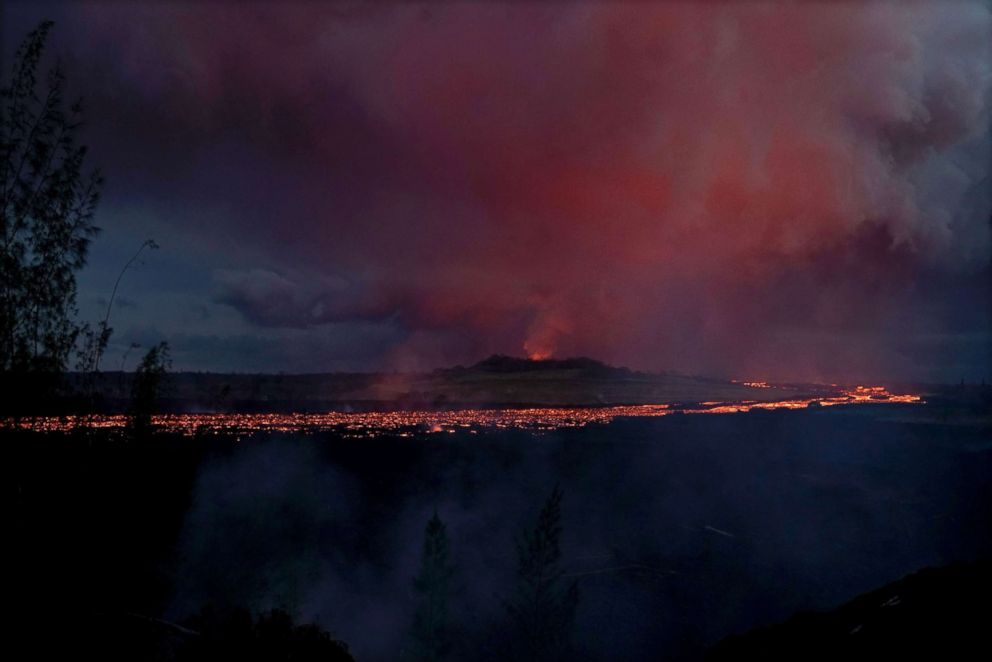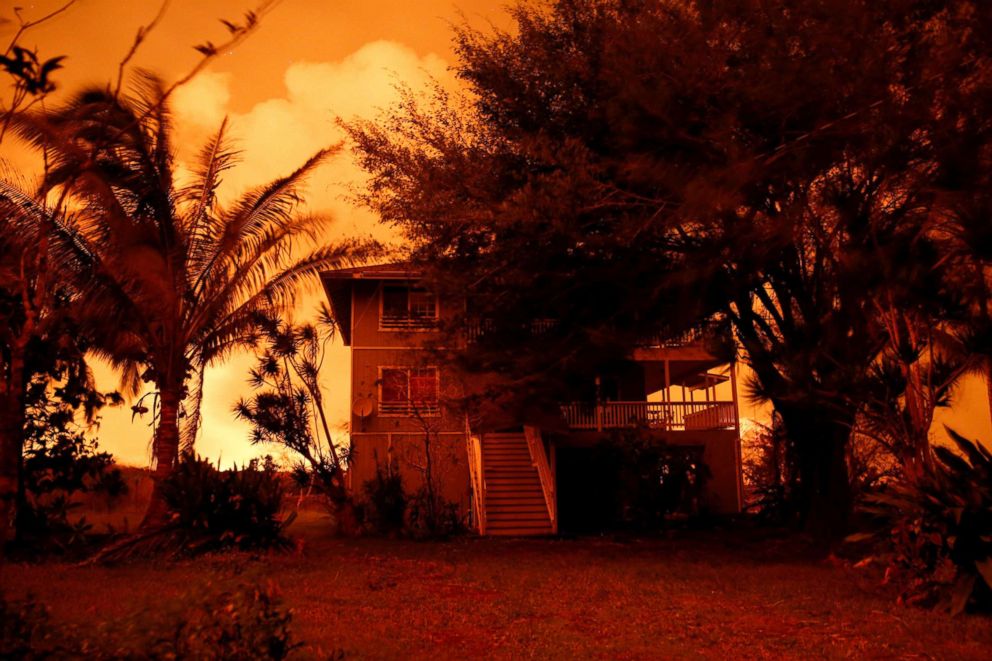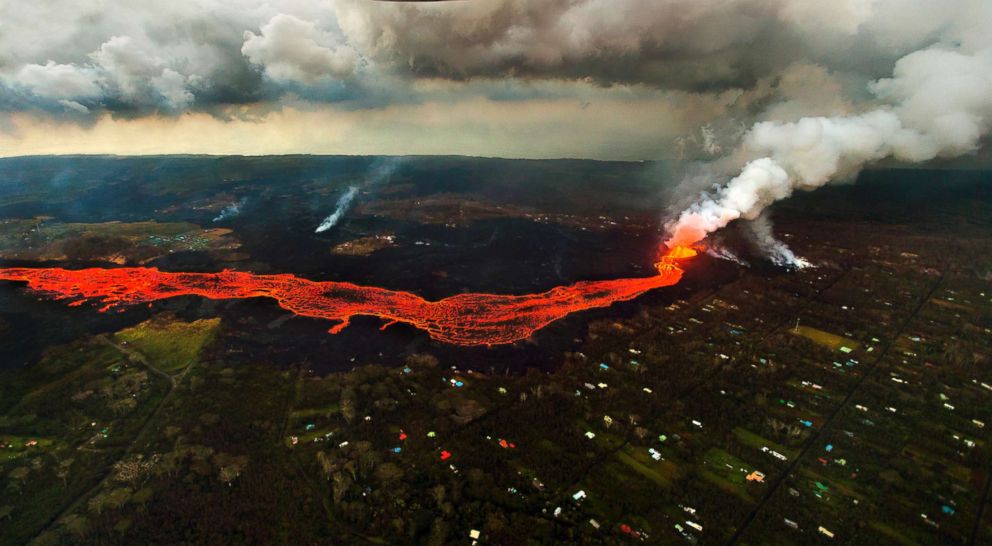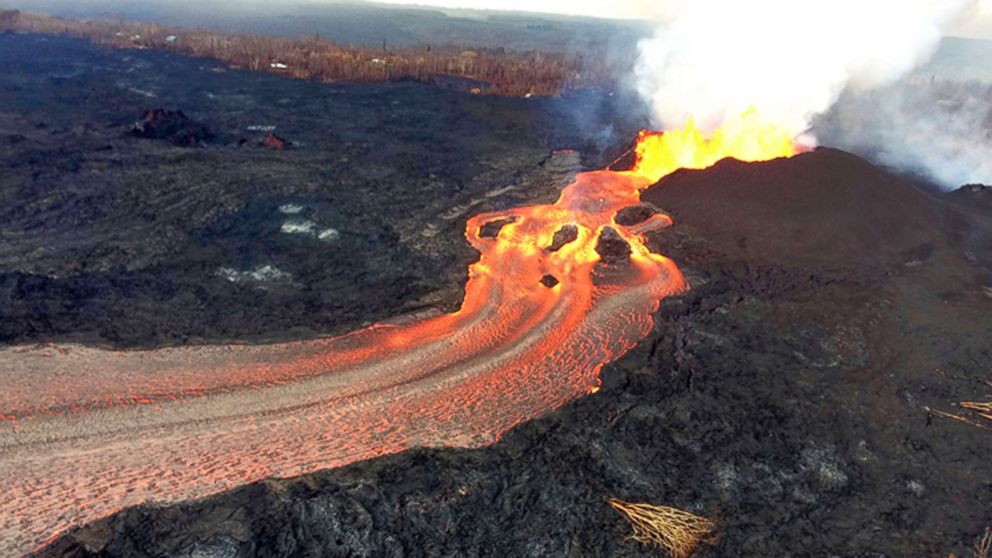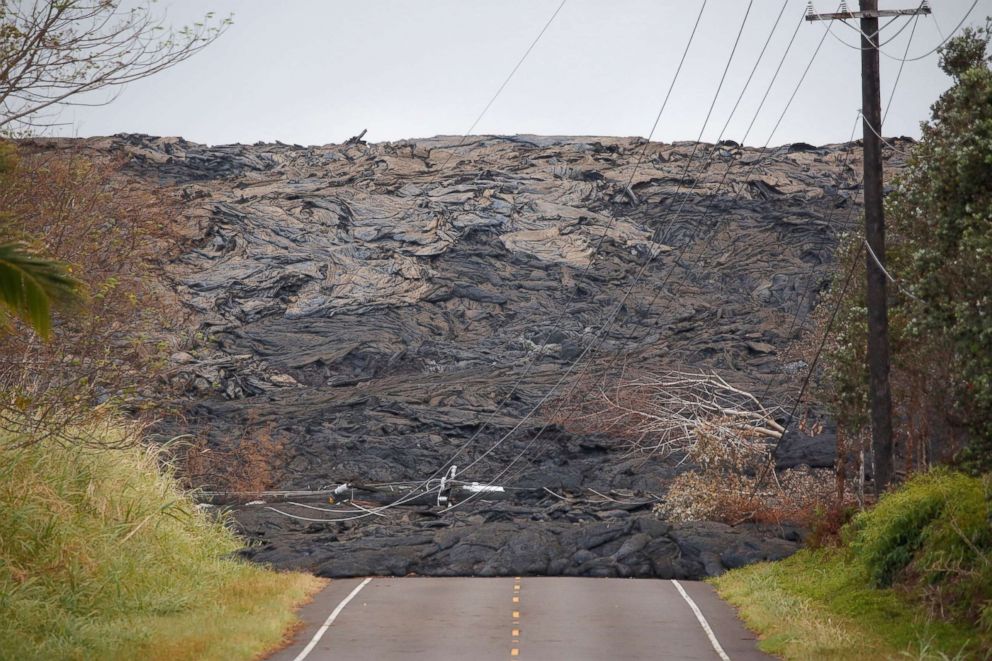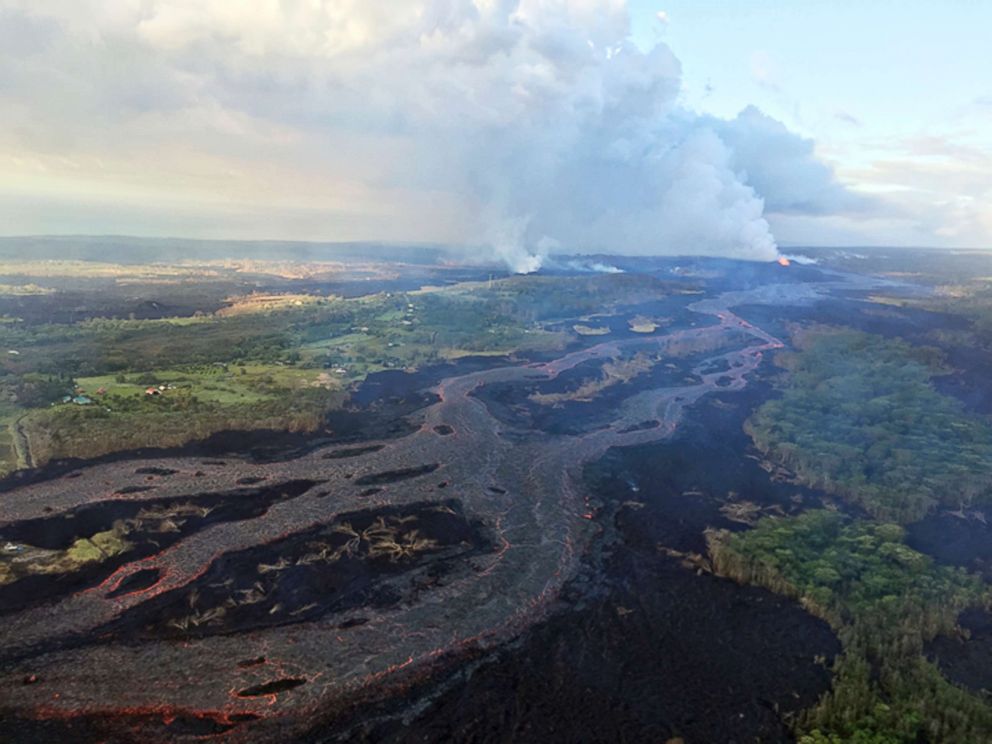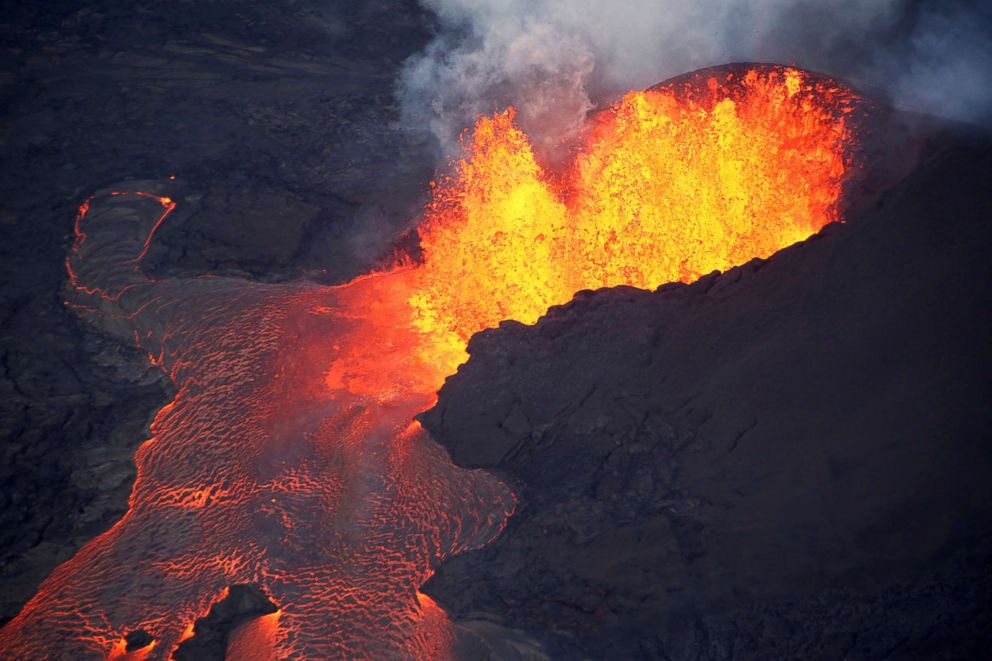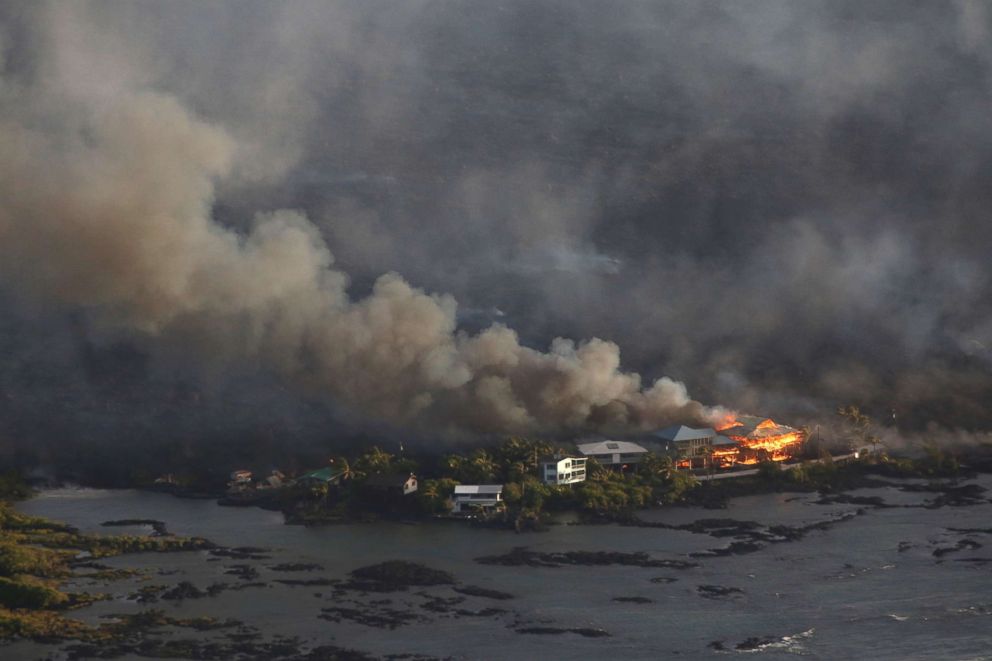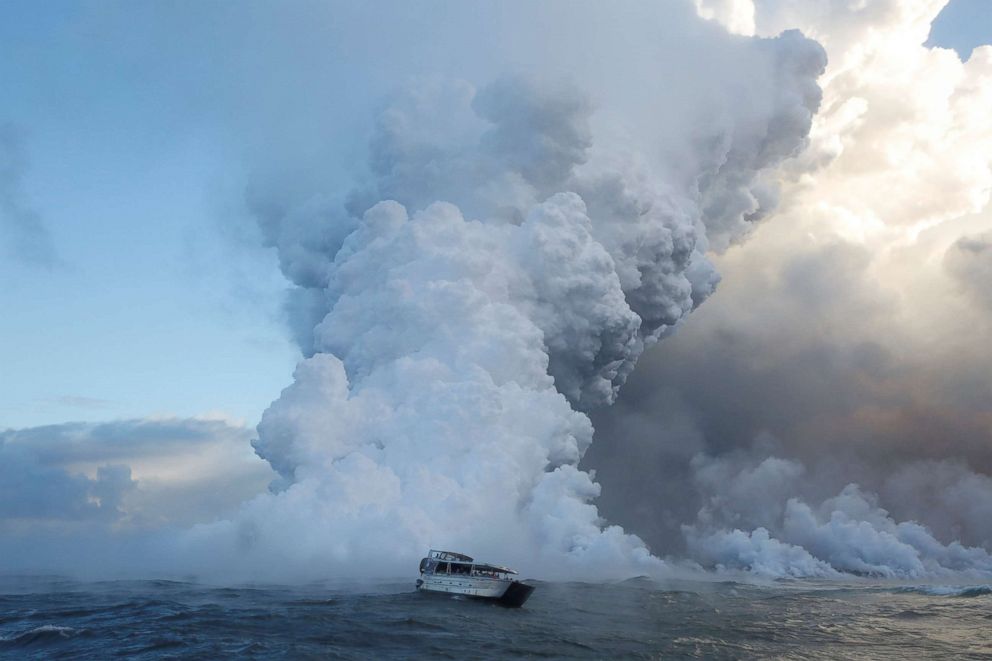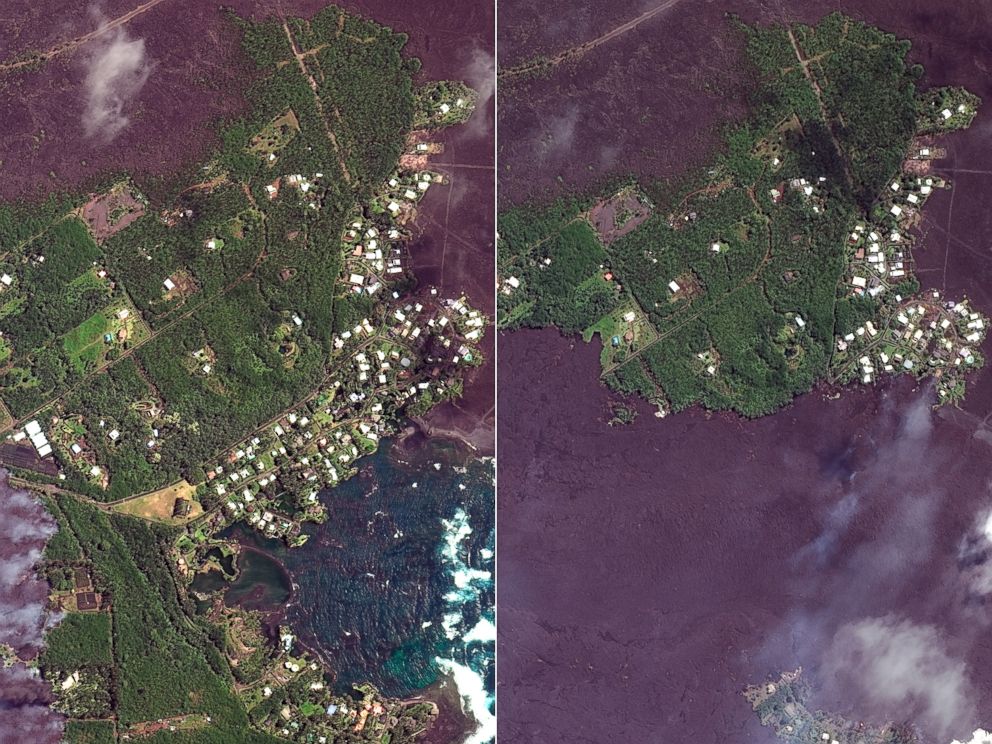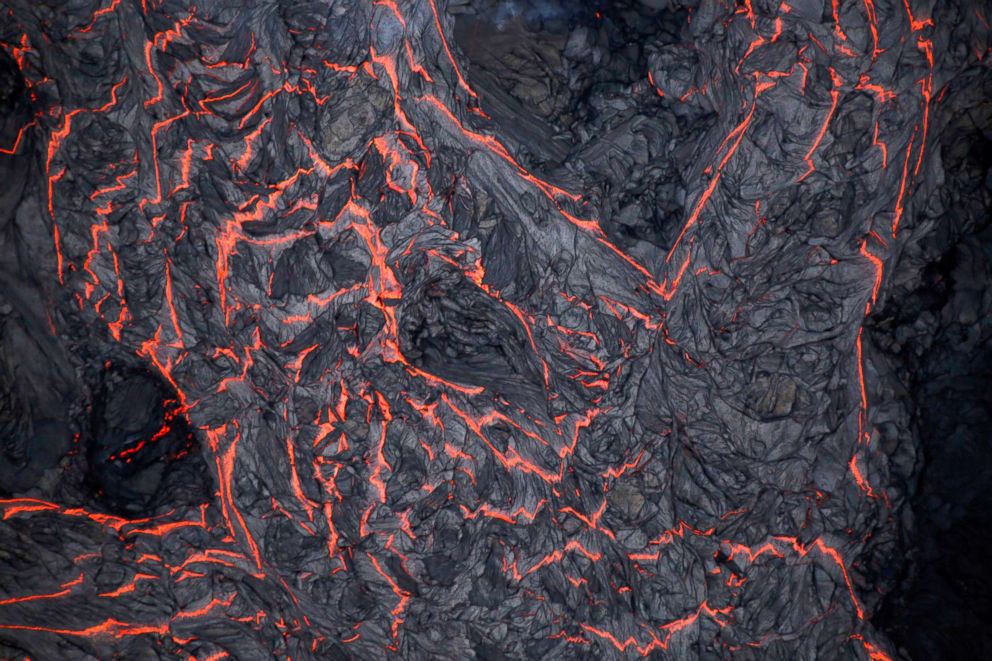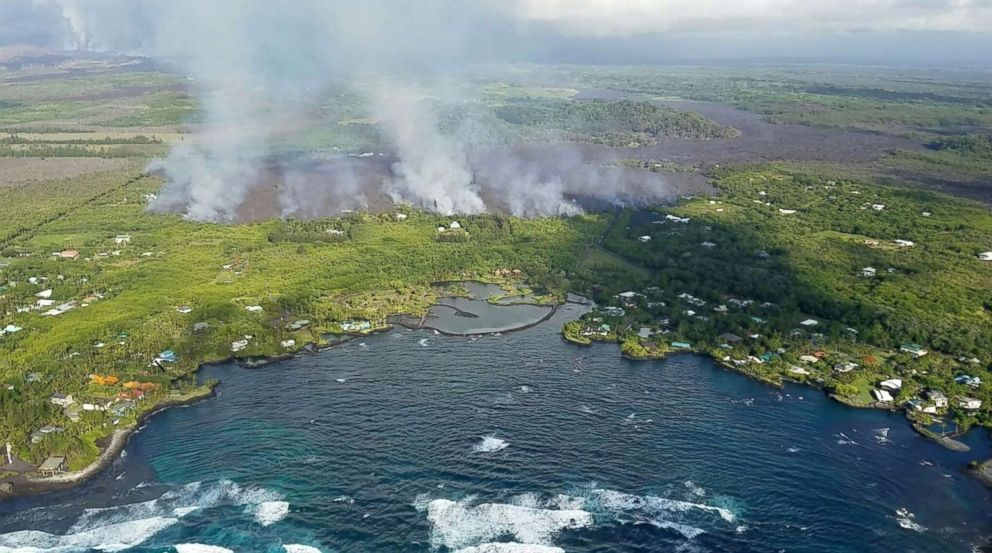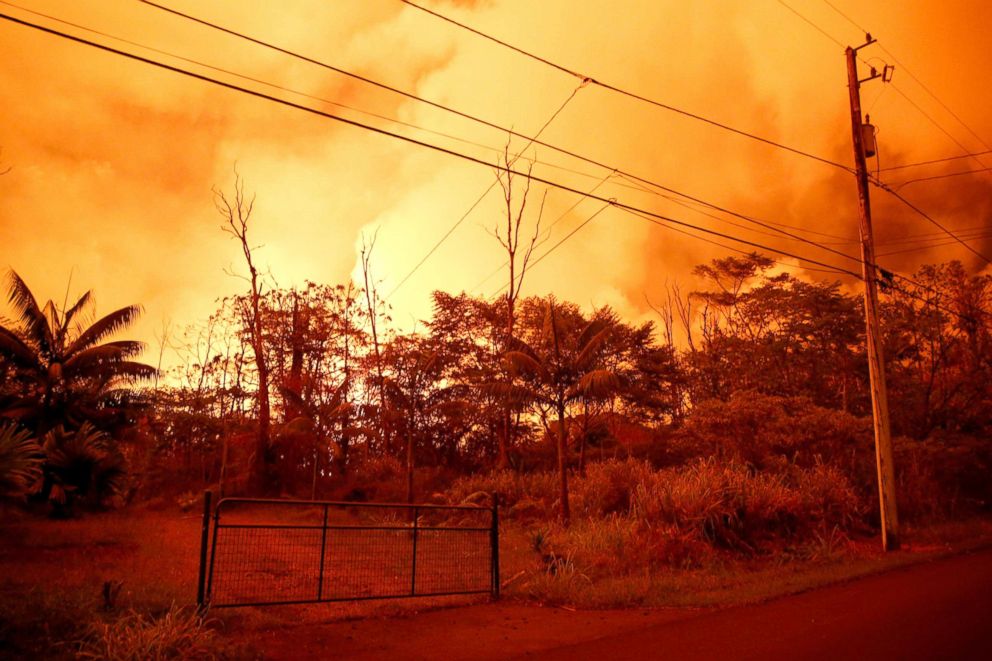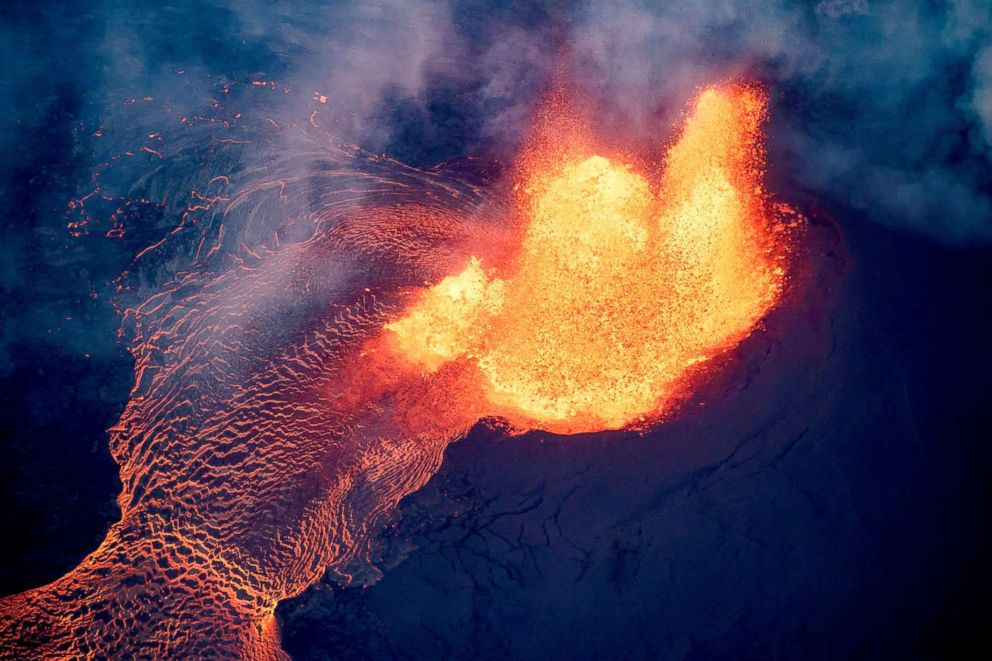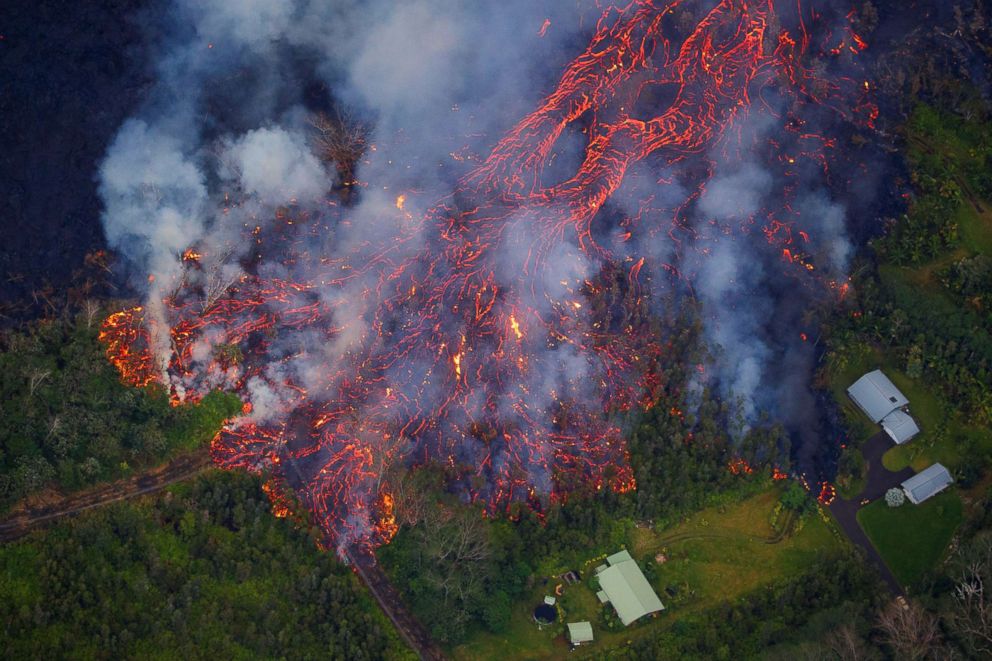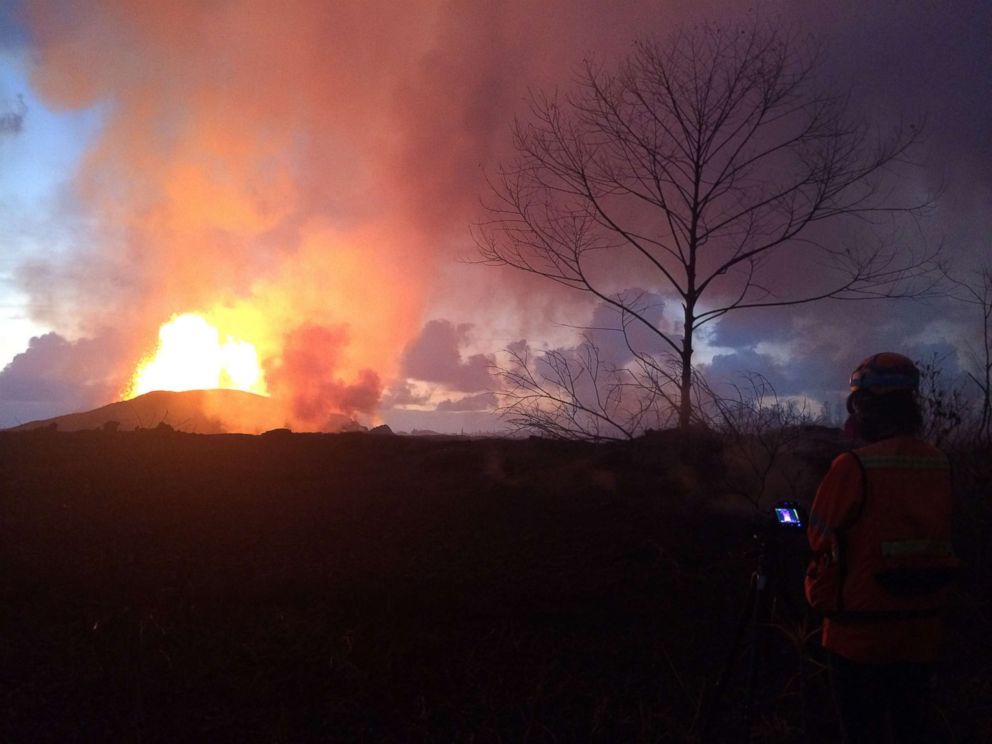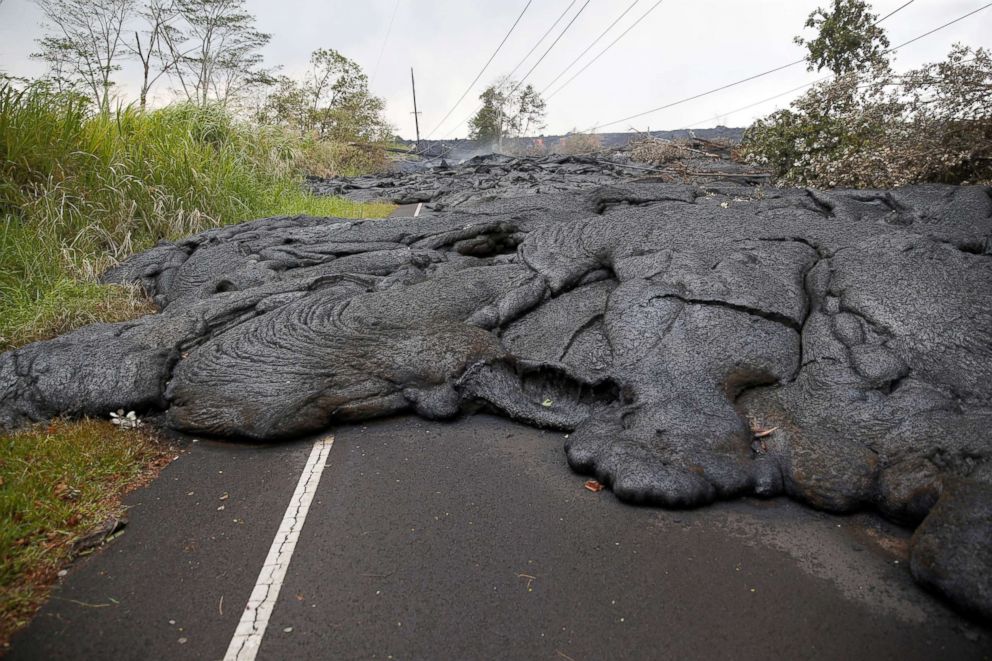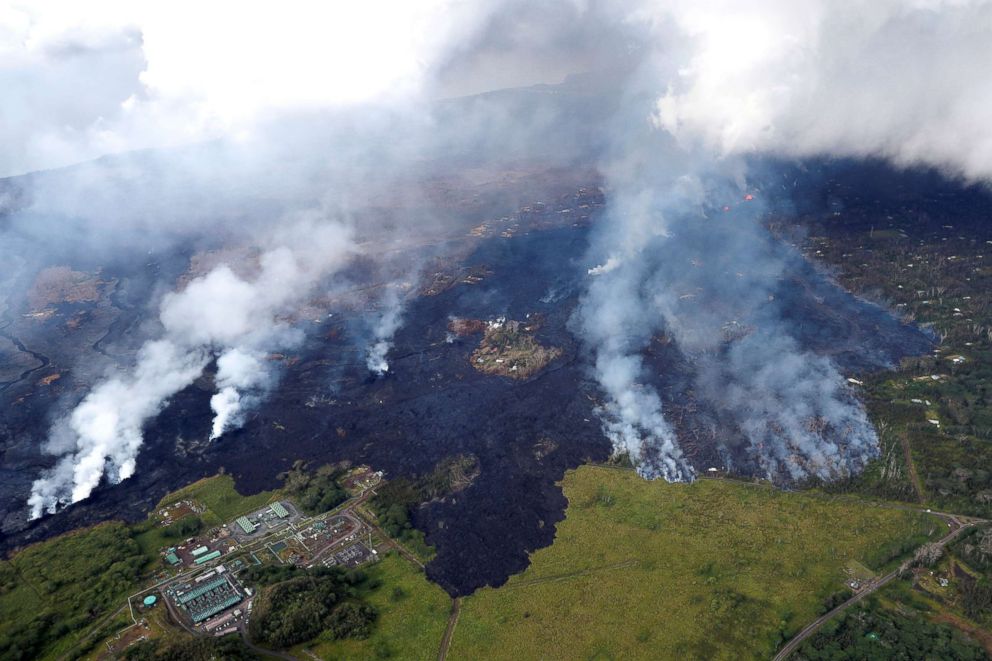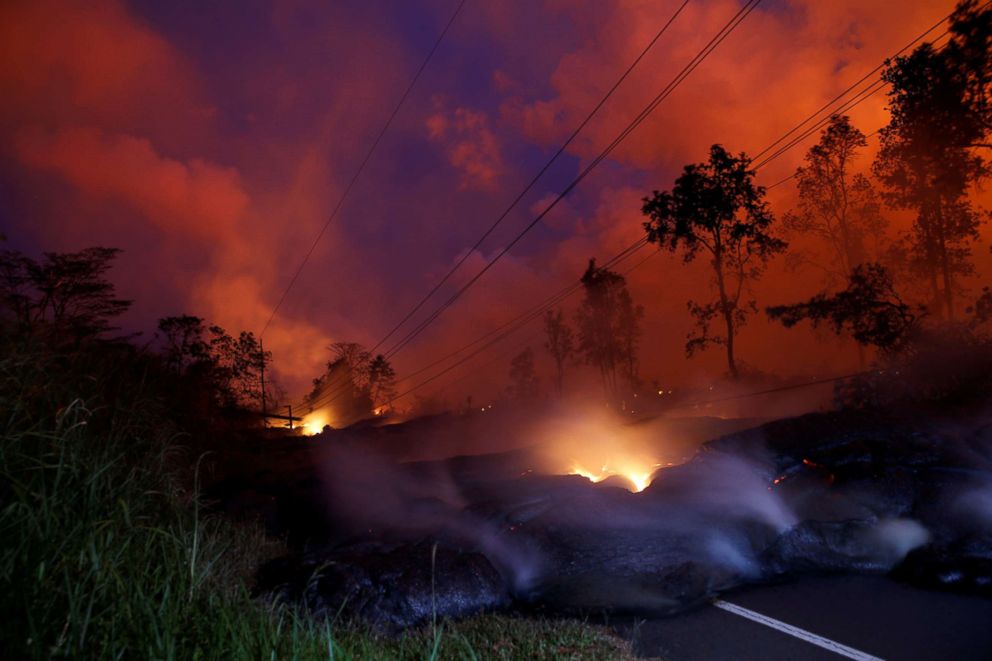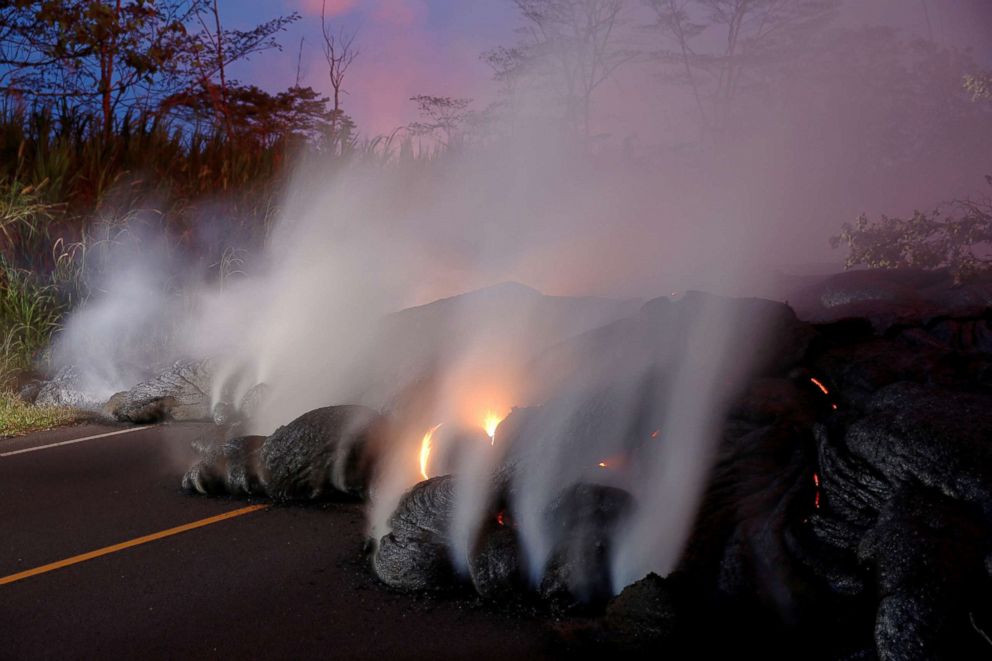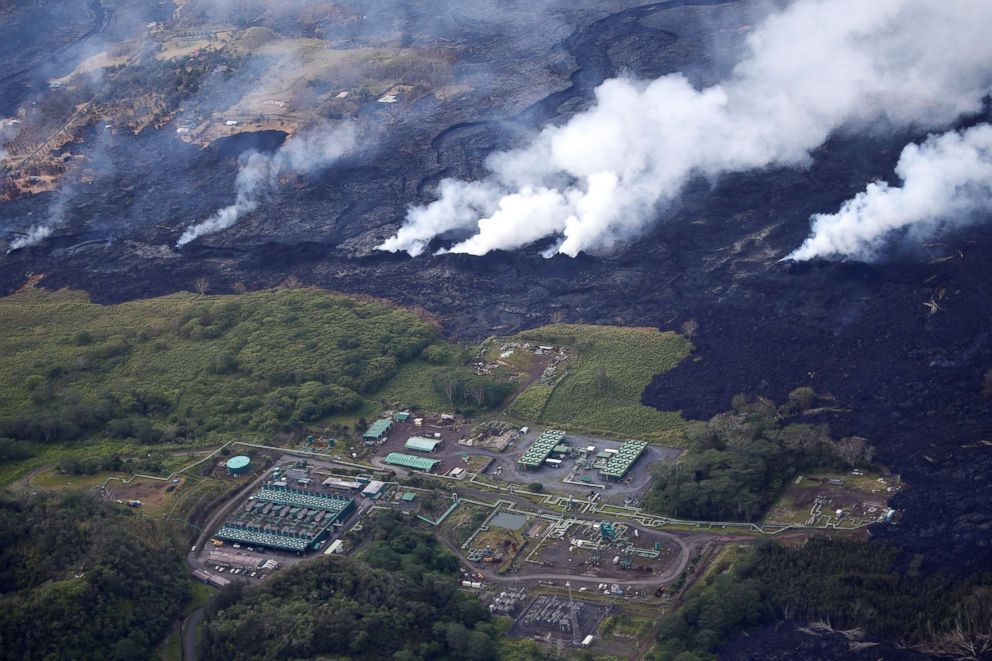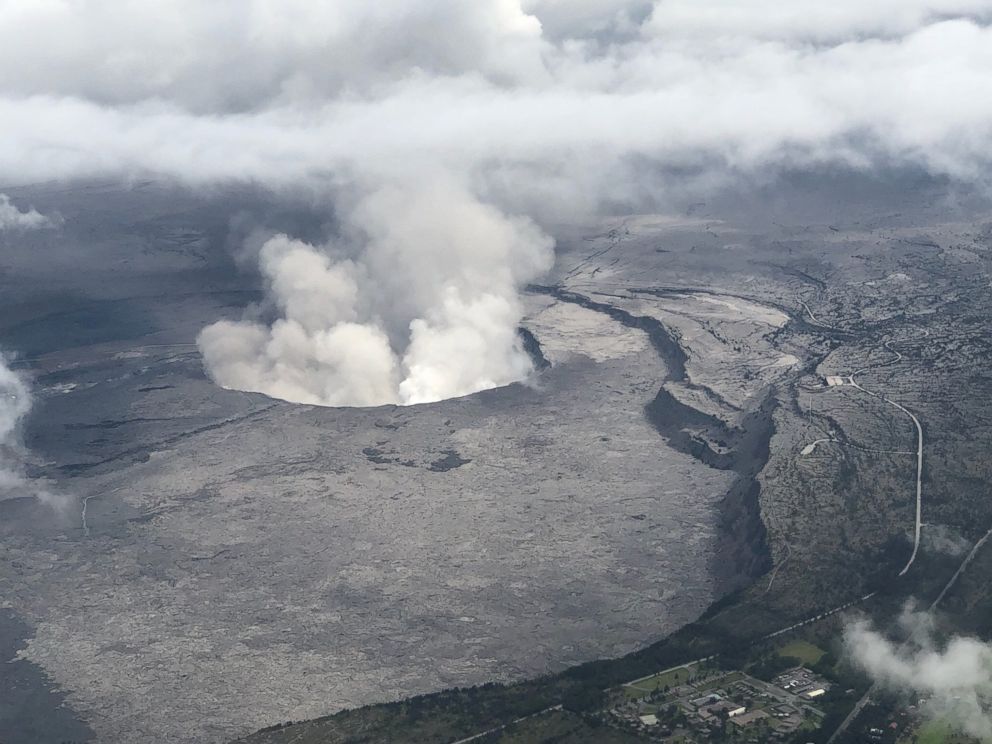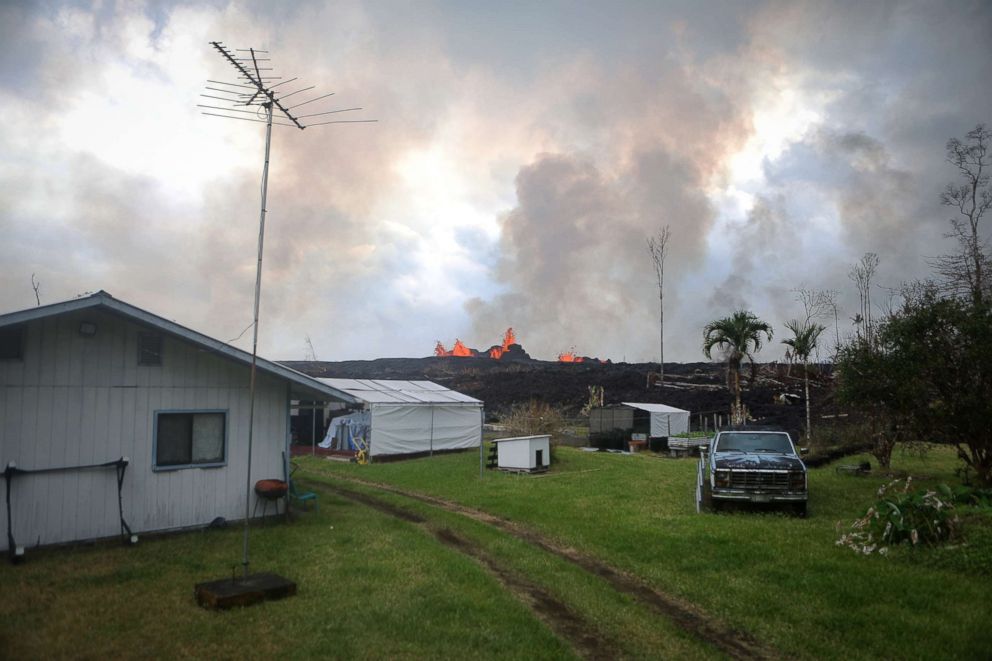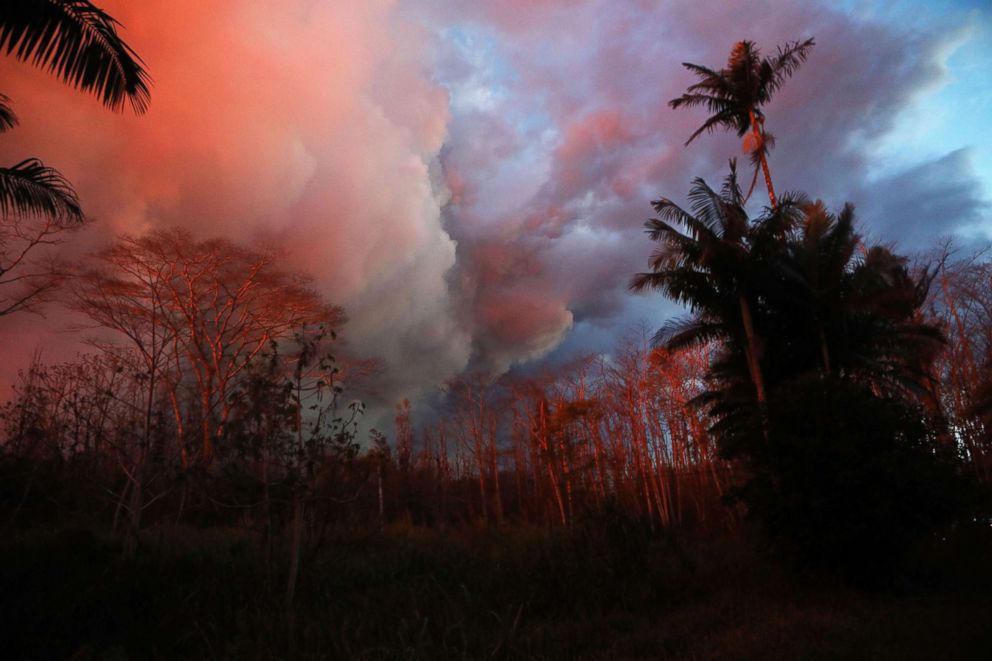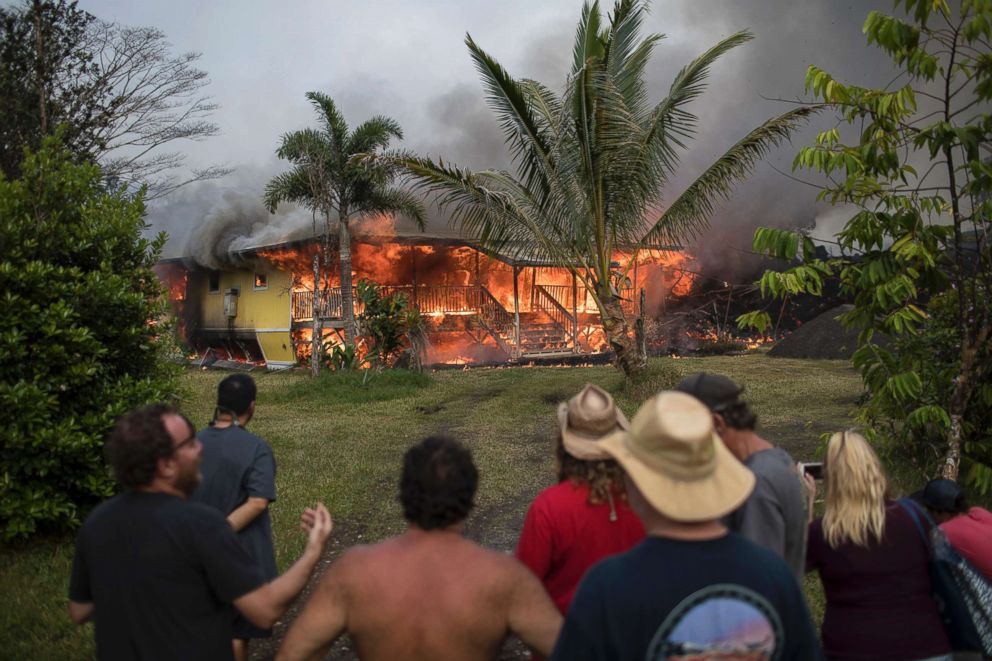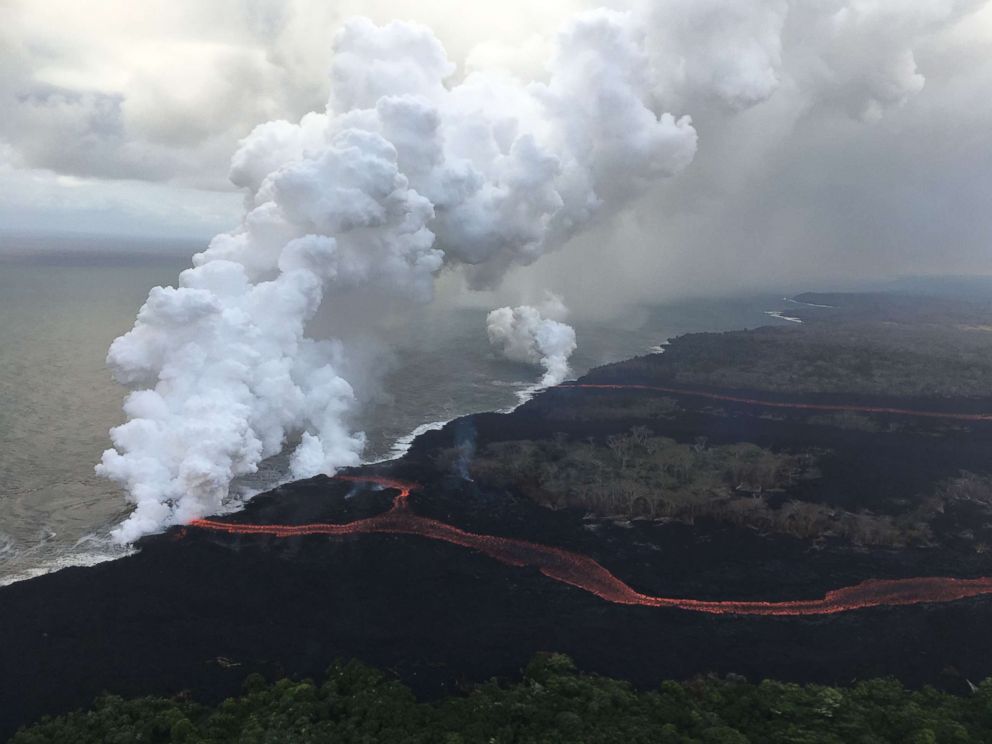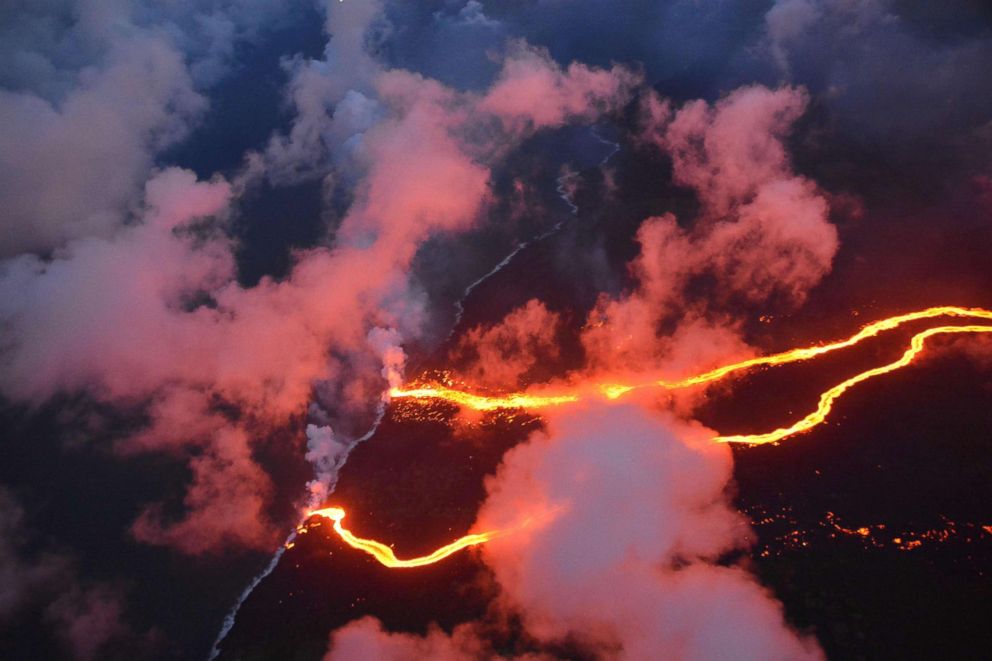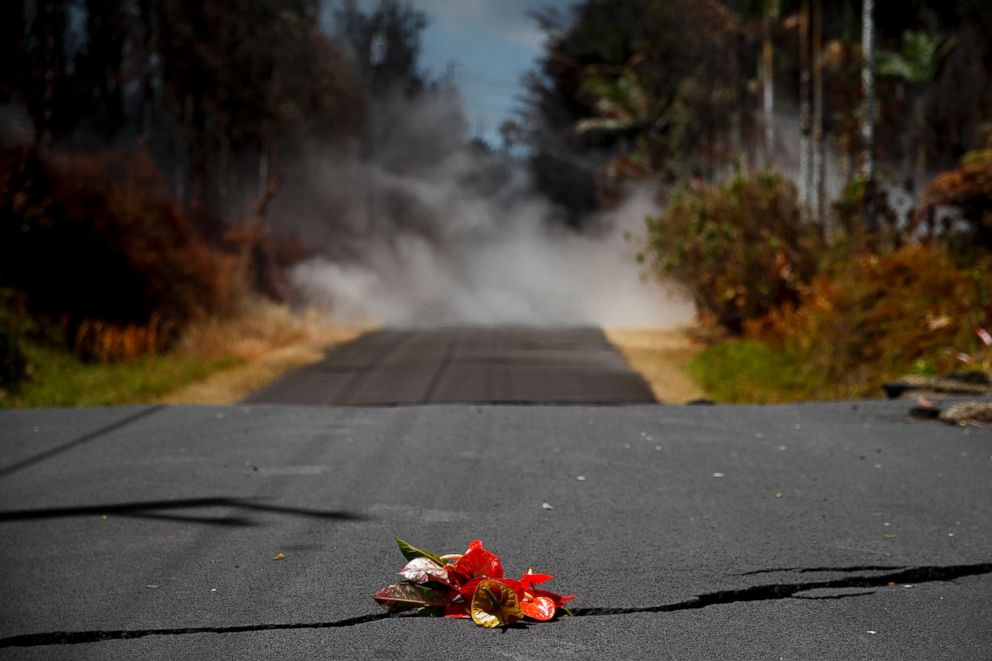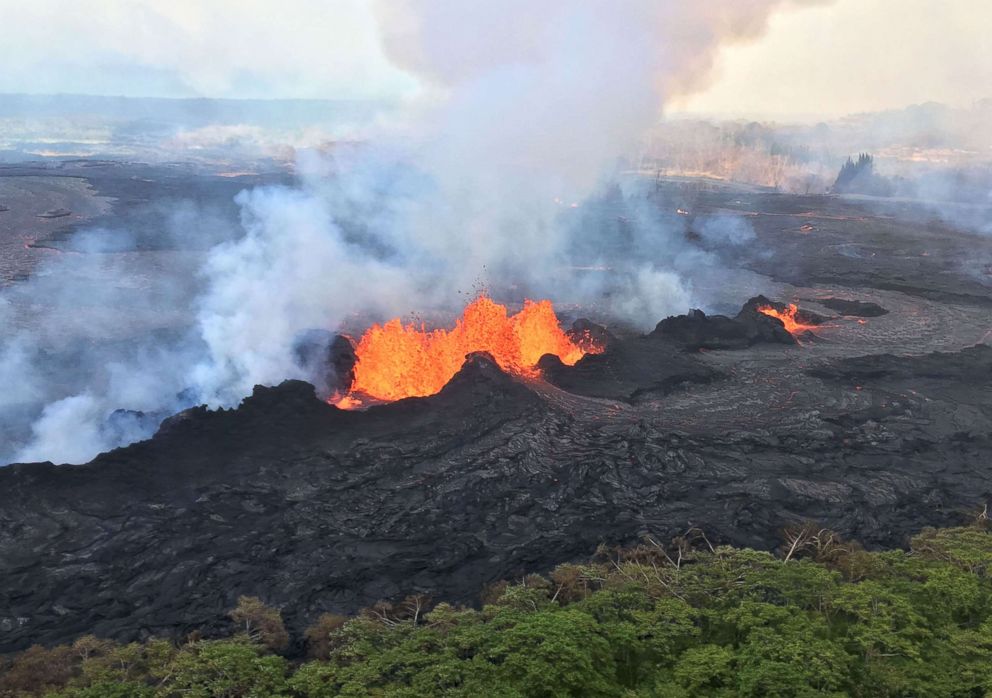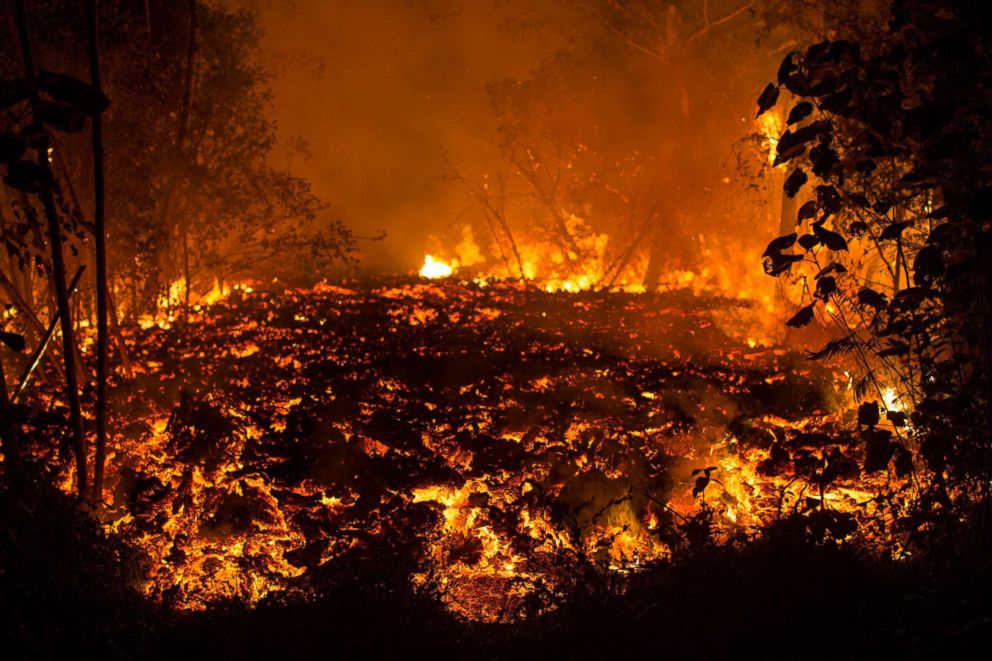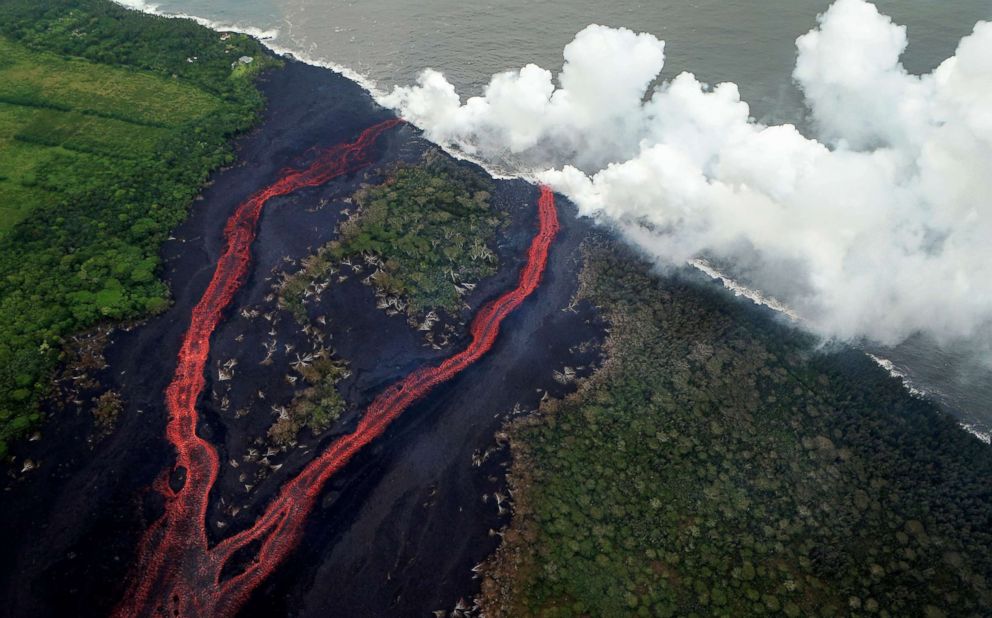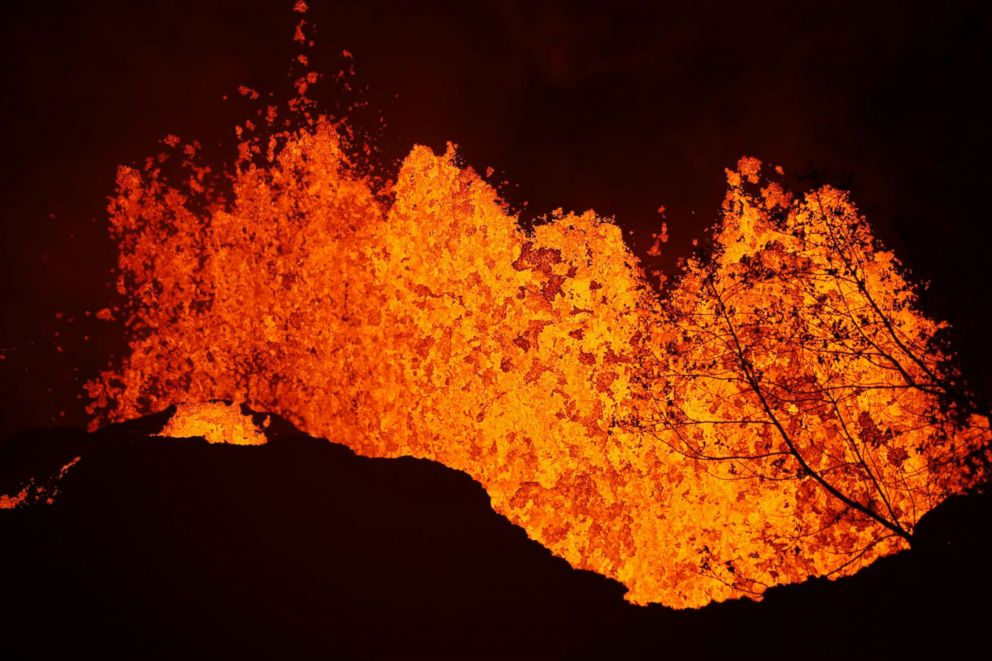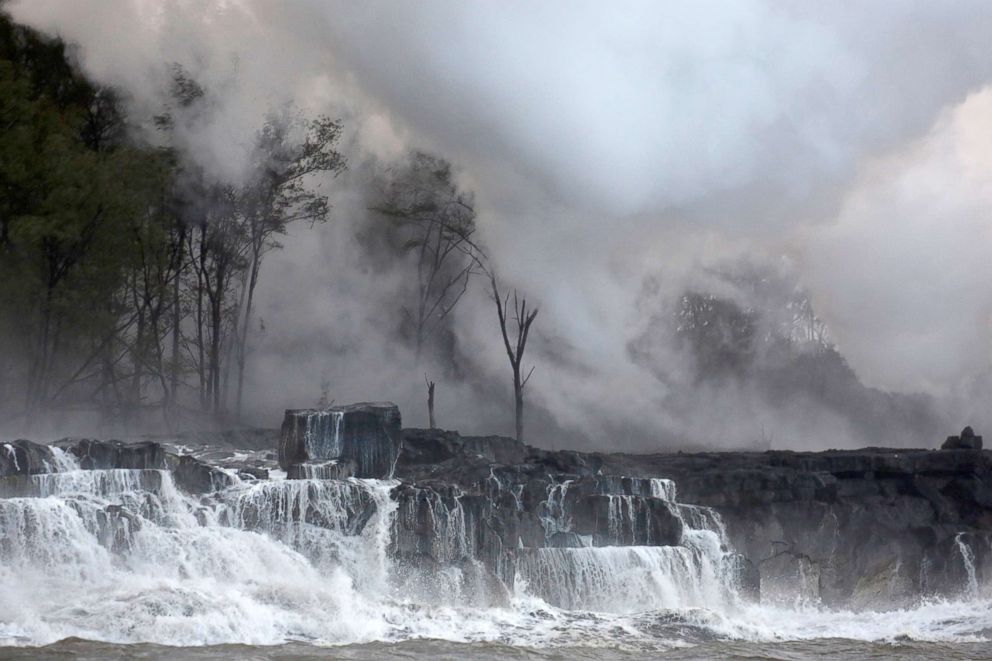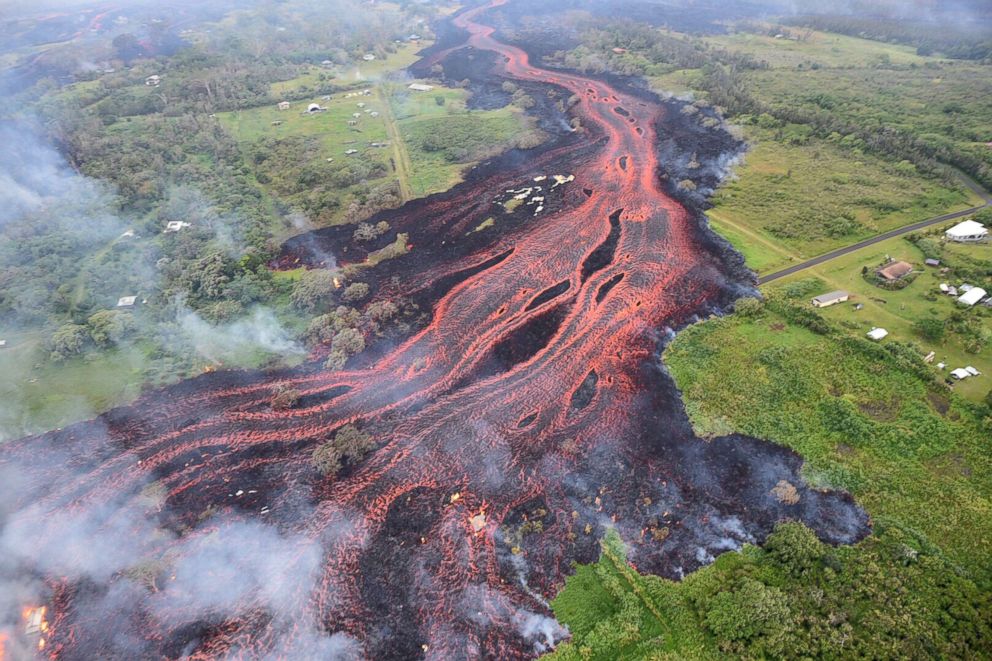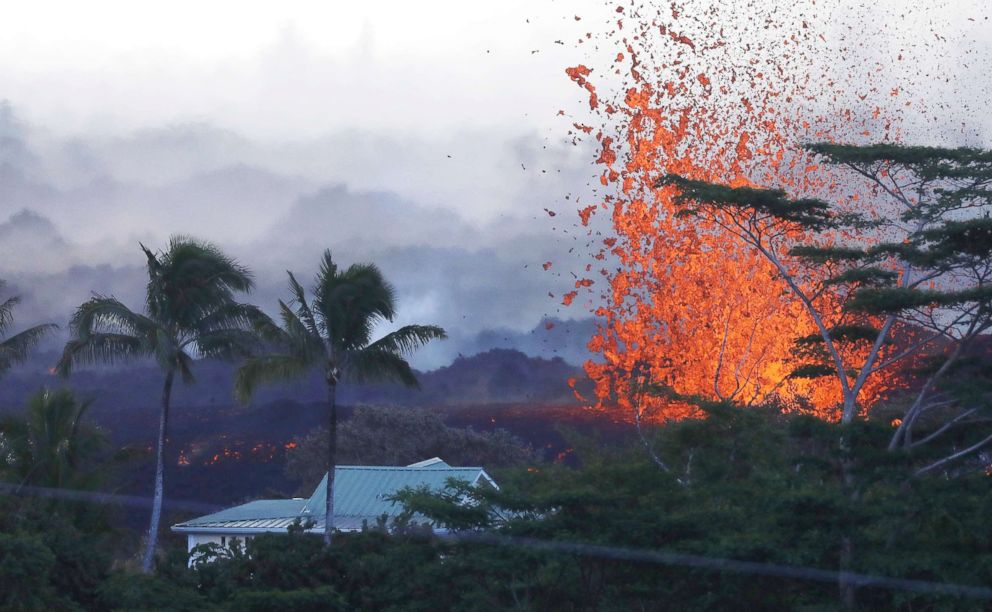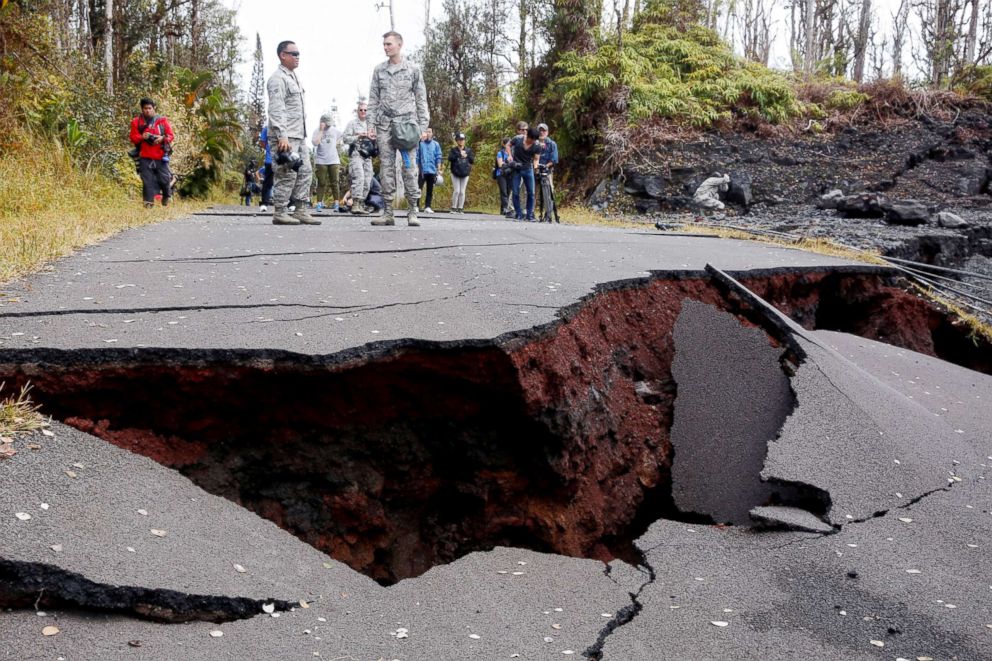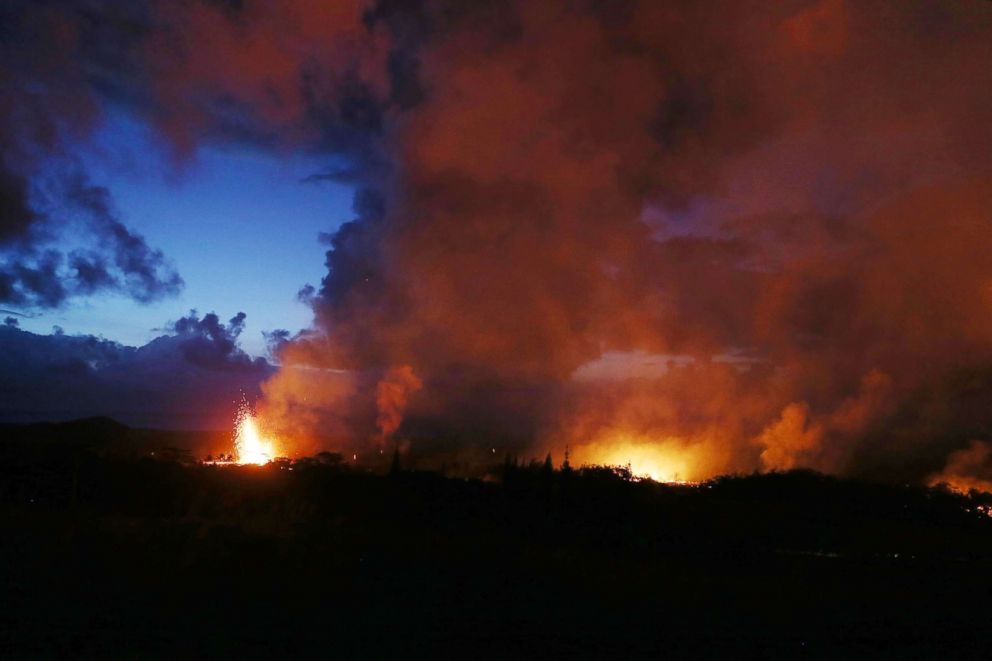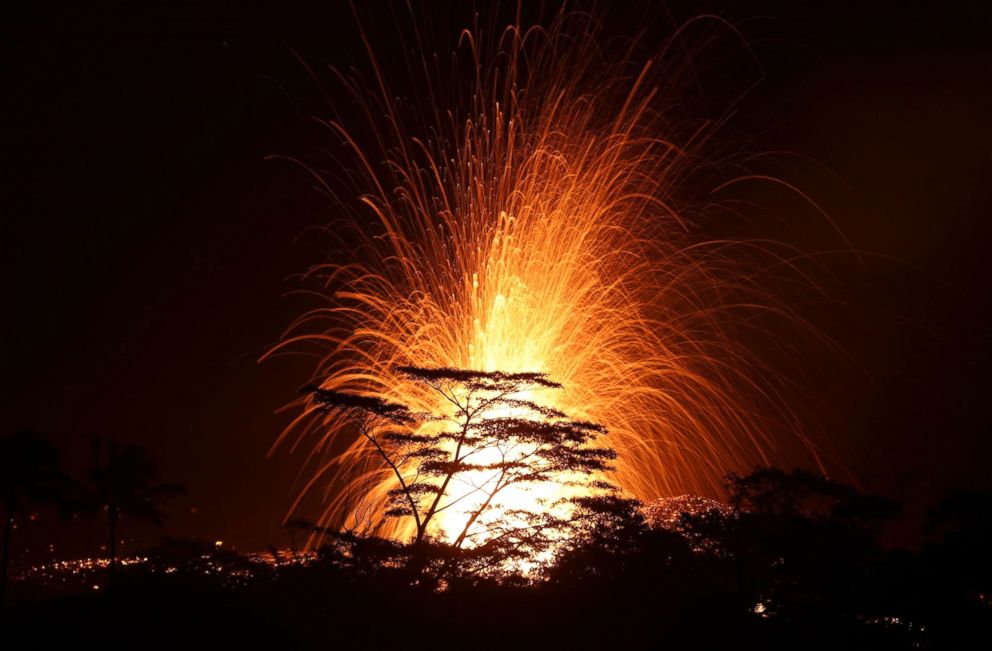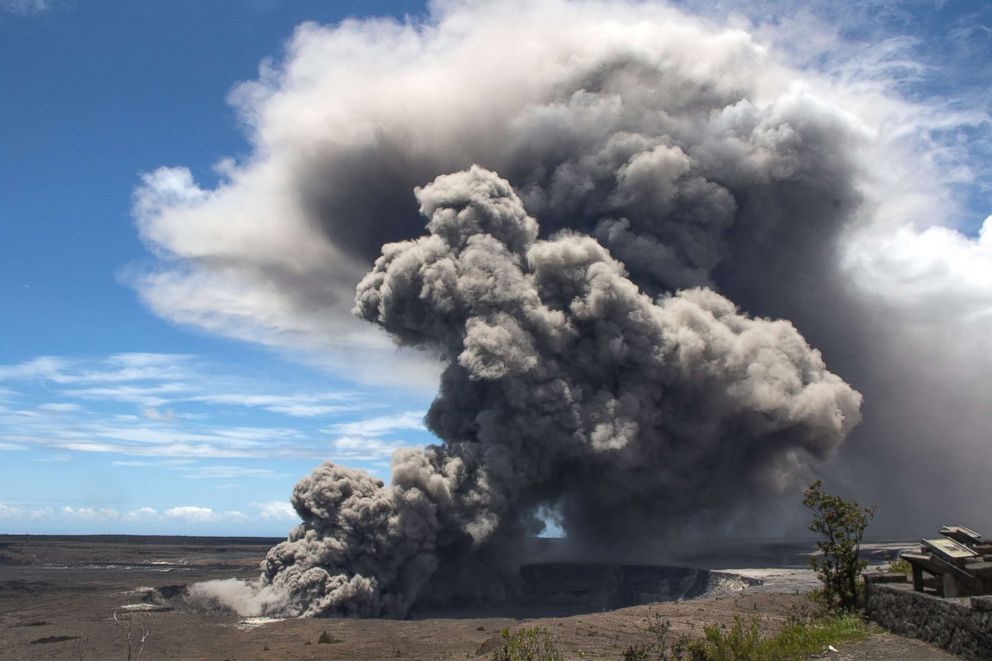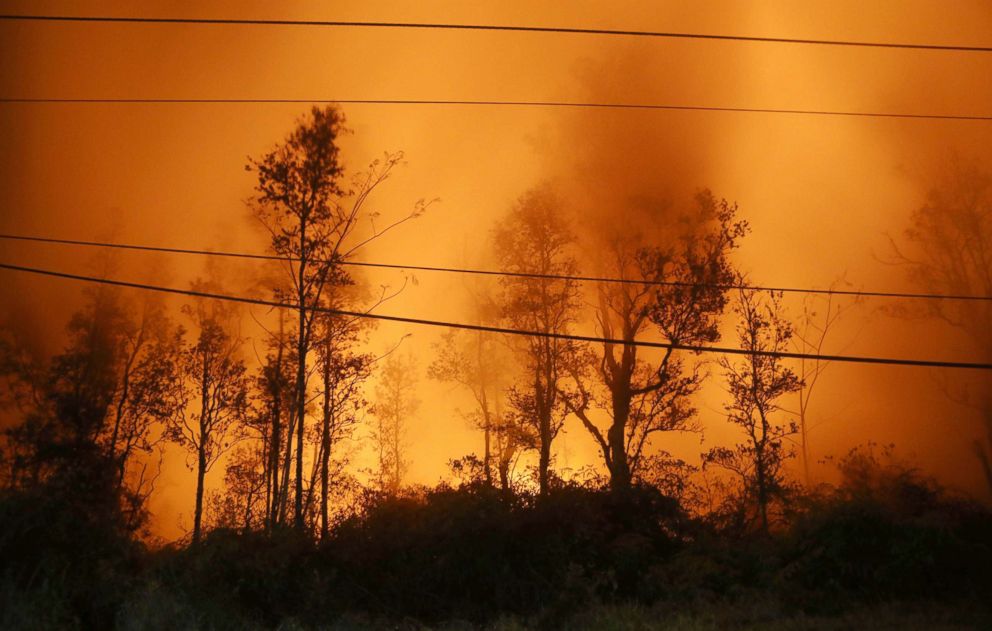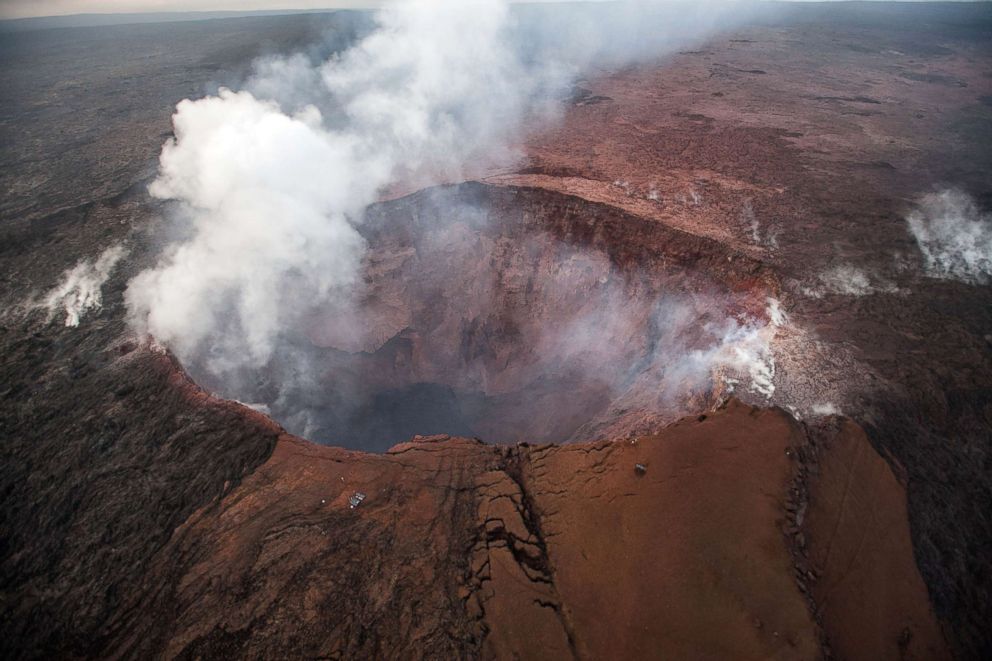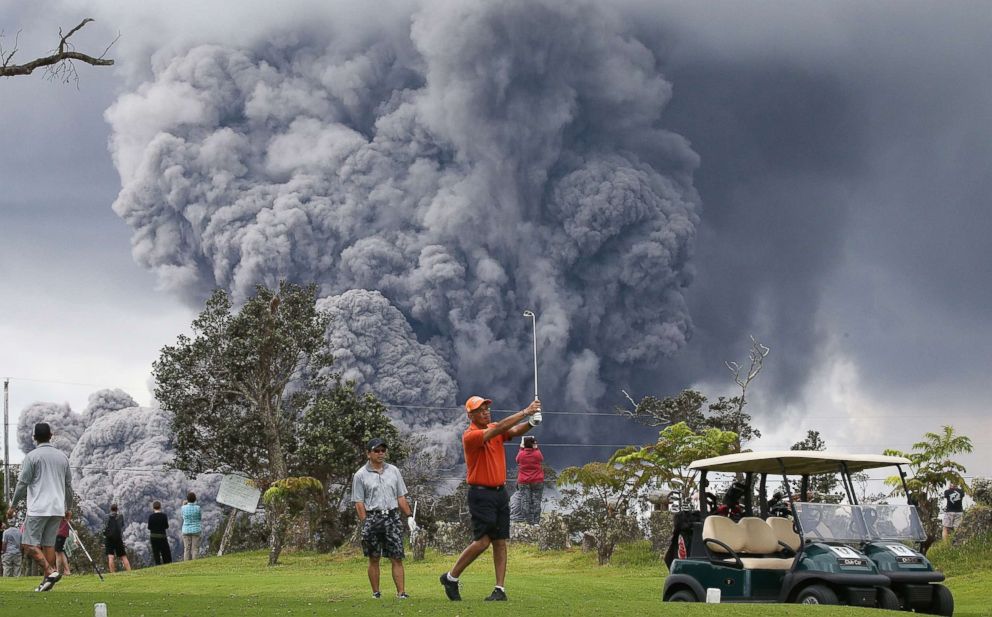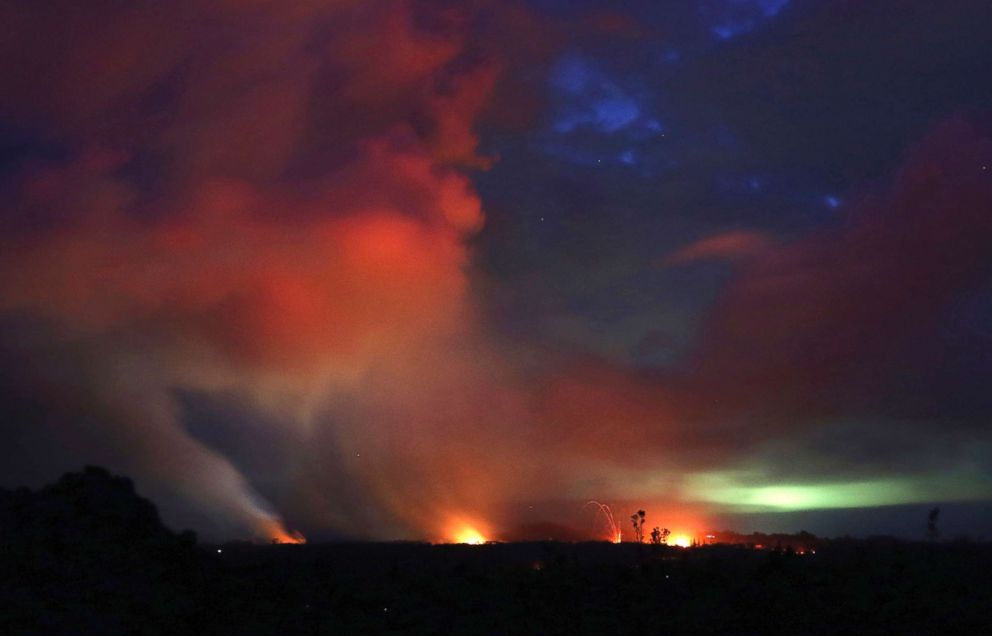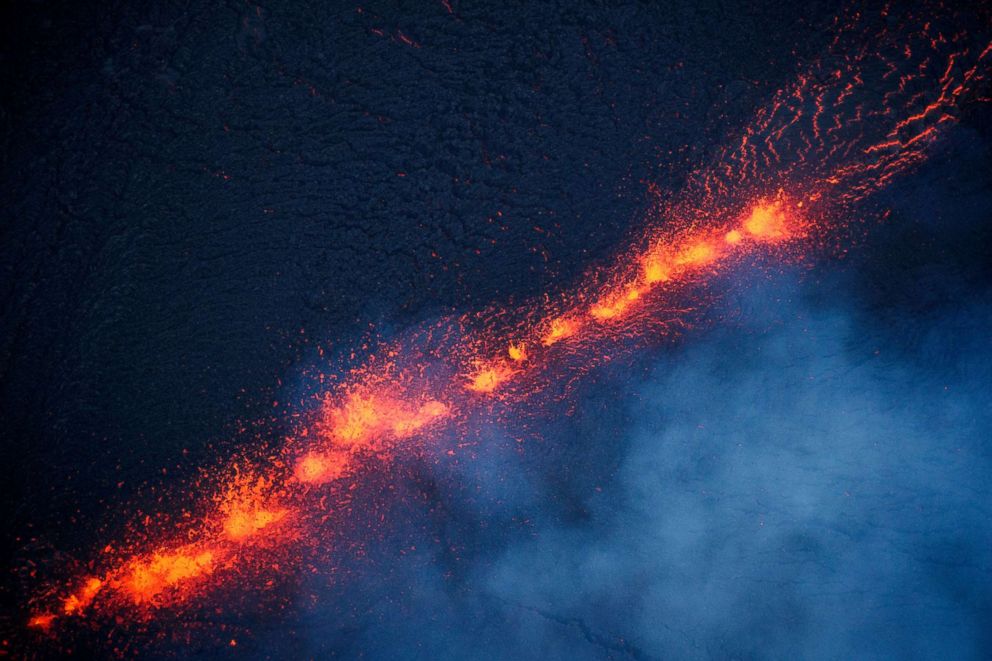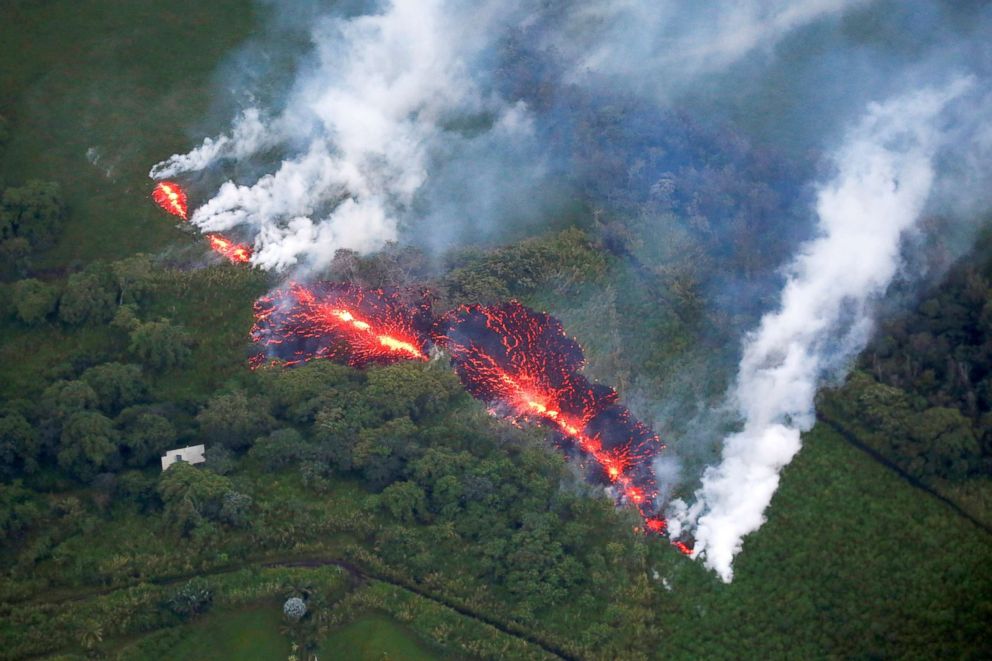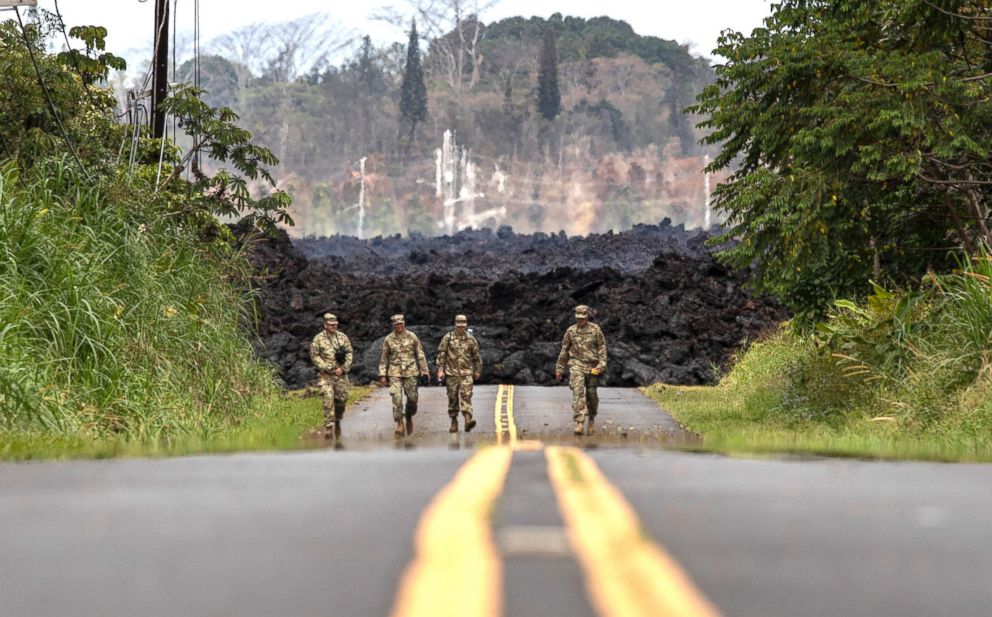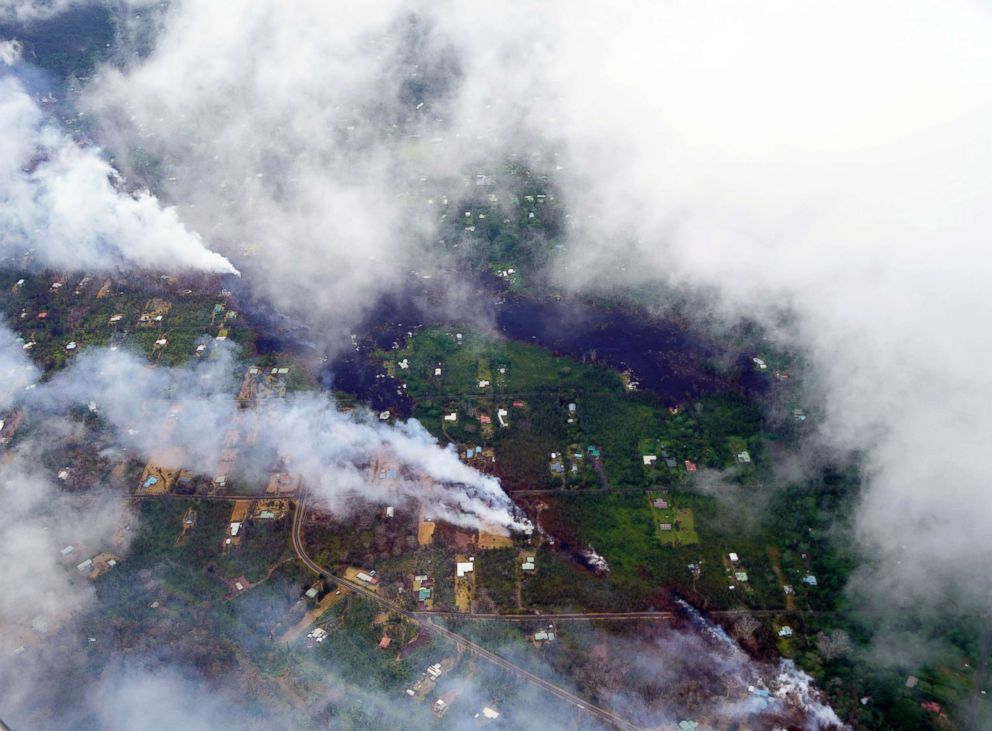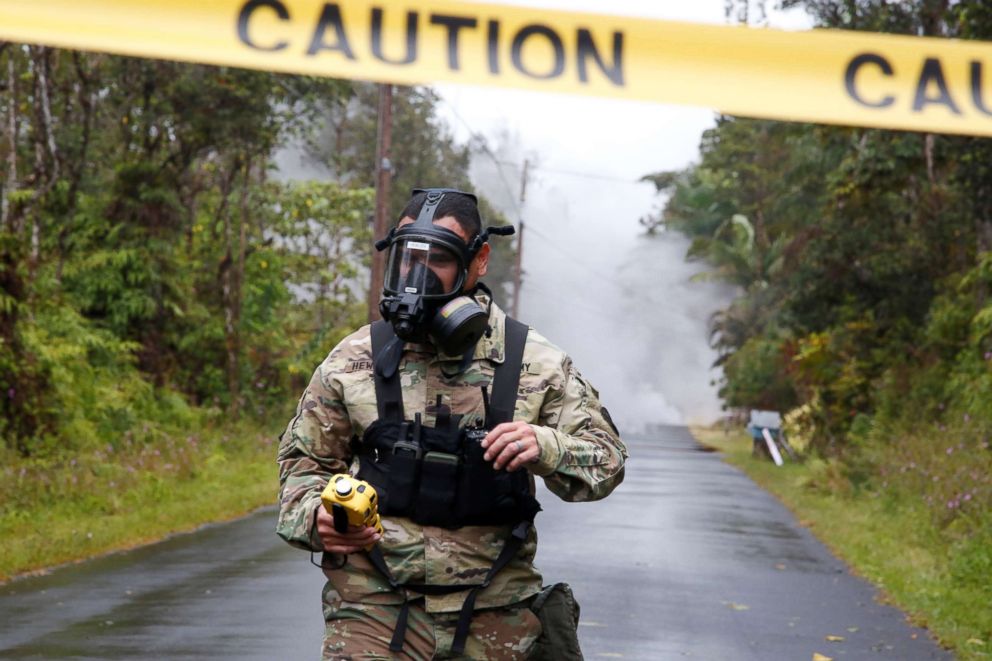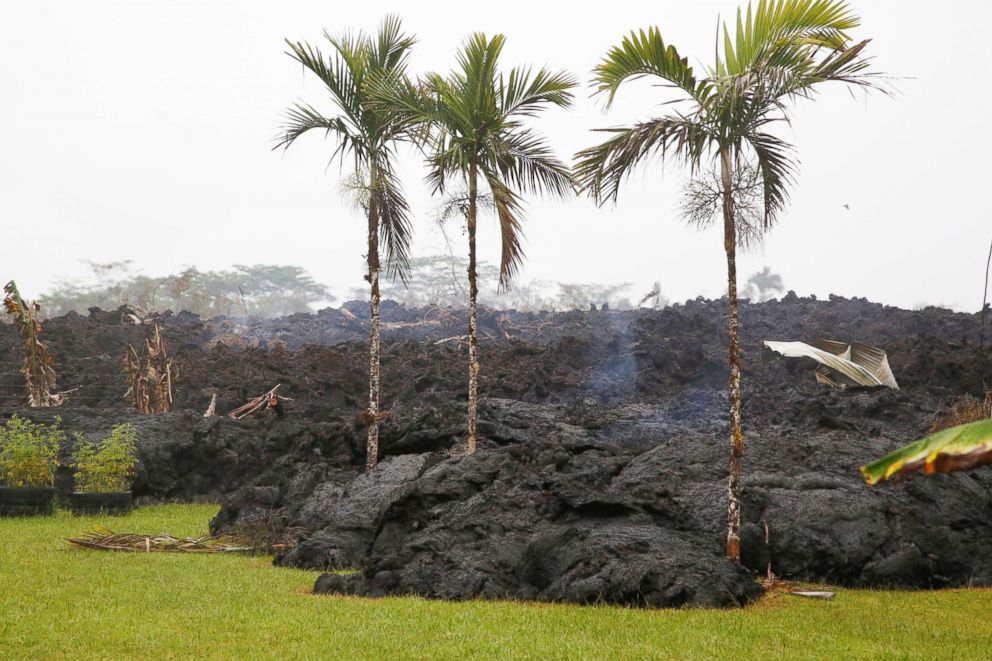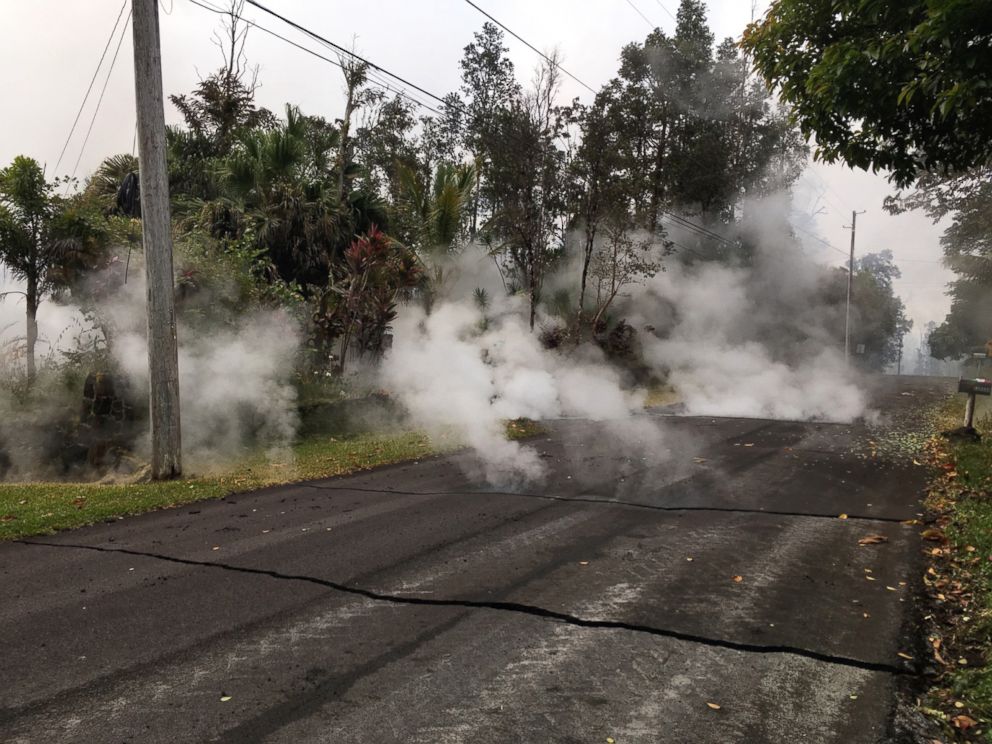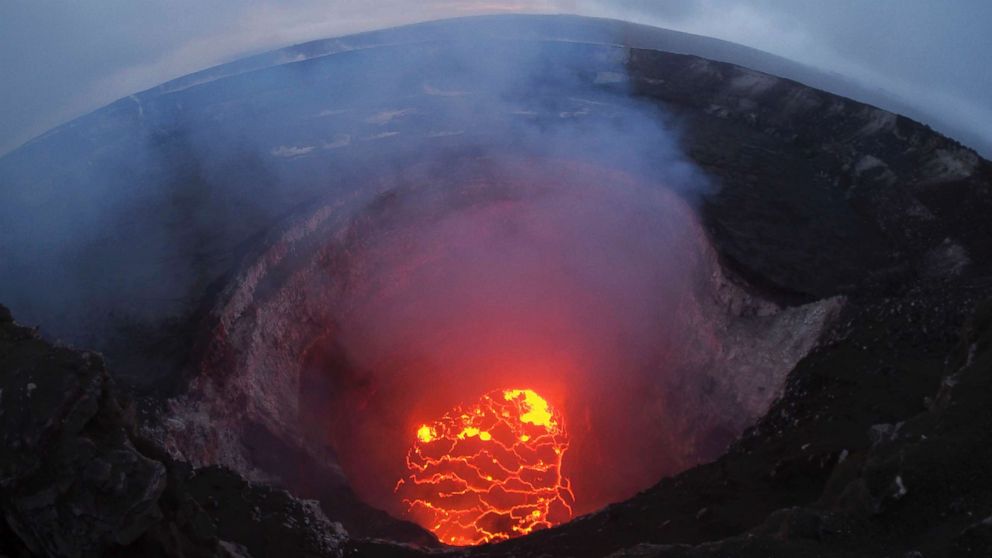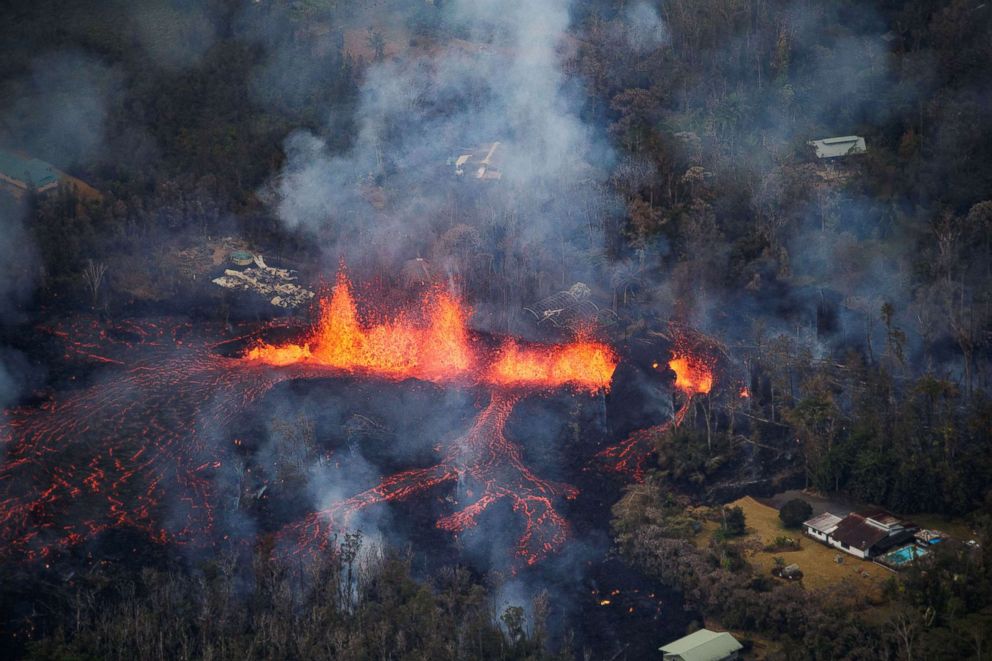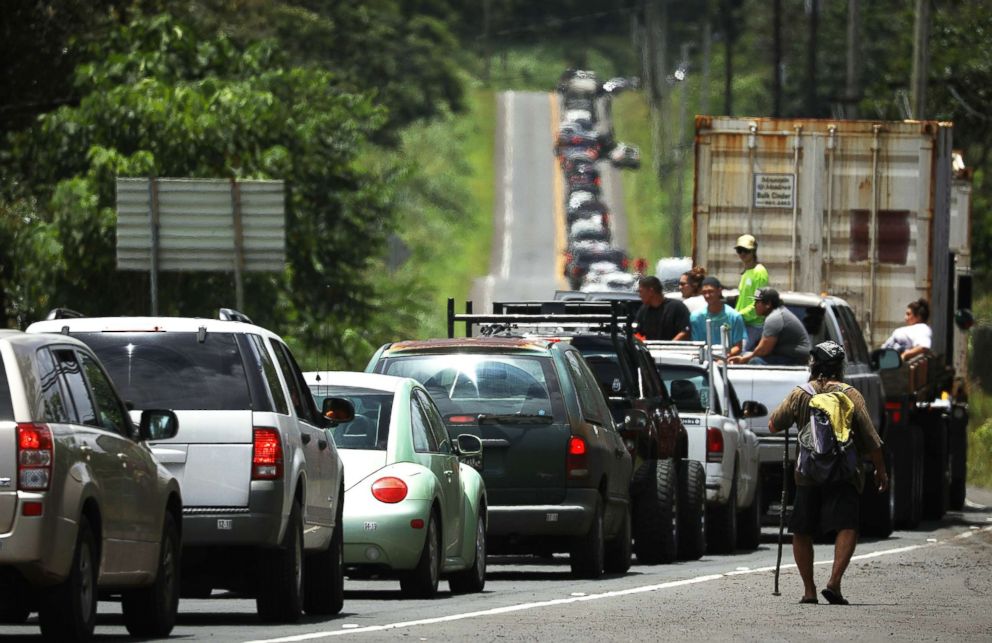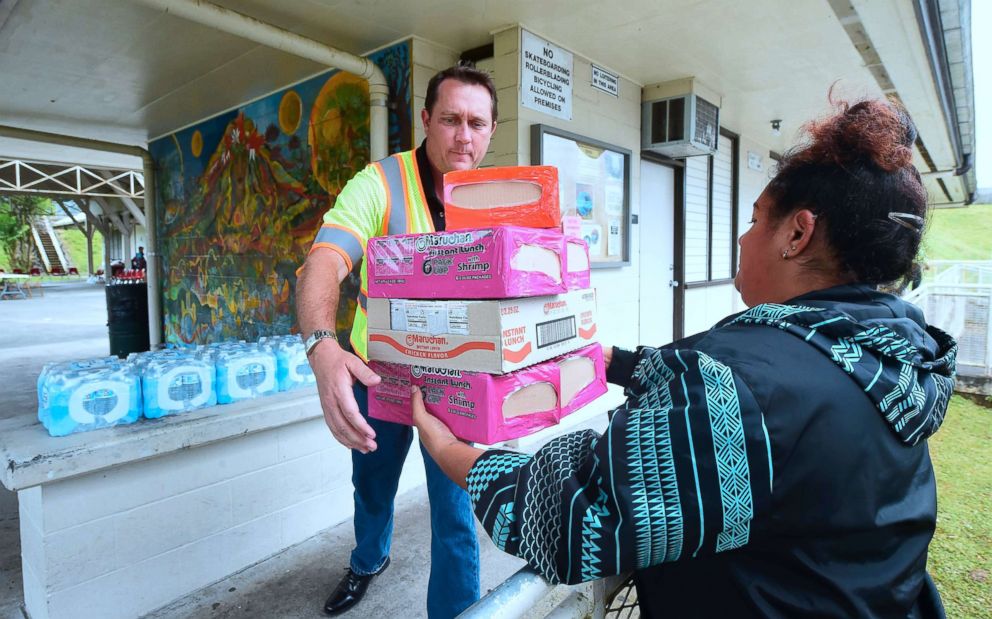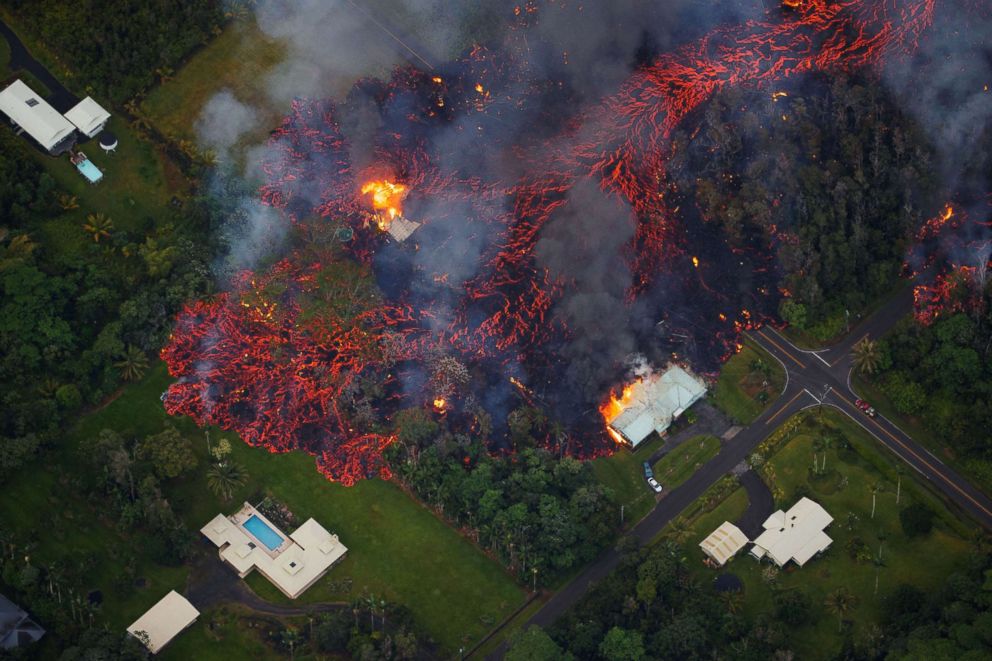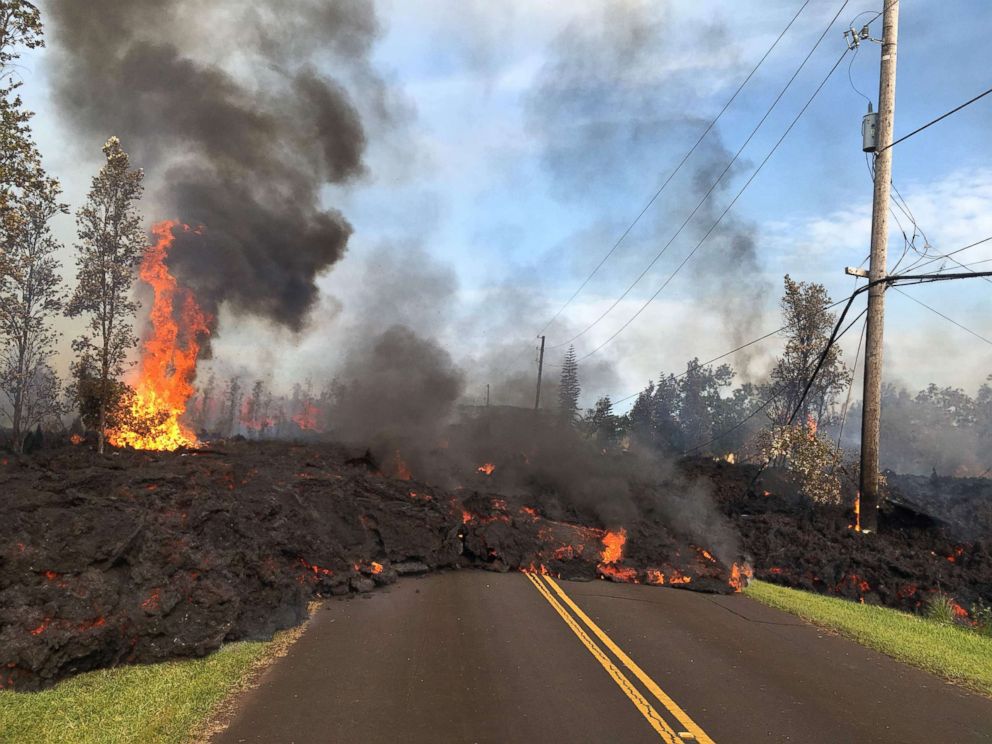New volcanic eruption in Hawaii spews more lava into the ocean, triggering more fears
Kilauea erupted again Monday evening in Hawaii.
Kilauea, the volcano in Hawaii that began erupting almost three weeks ago, exploded again Monday evening and the lava flow from one of its fissures was threatening a geothermal plant, authorities said.
The latest eruption occurred around 5:51 p.m. local time, according to the Hawaii County Civil Defense Agency, citing a report from the Hawaiian Volcano Observatory.
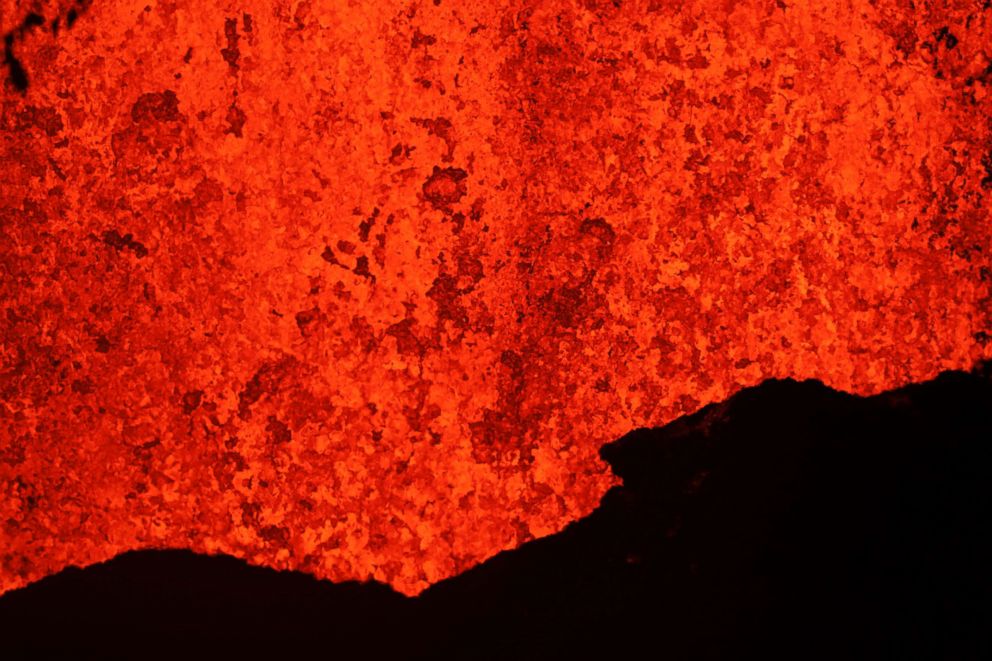
"Eruptive lava activity at multiple fissures continues with one flow entering the ocean," the agency said in a post on Facebook. "Fissure 22 continues to produce most of the lava feeding the flows."
The 1,100-degree lava was gushing from multiple fissures and sending methane gas and flames shooting up through numerous cracks in the ground and sparking brush fires. Magma was gurgling out of the some of the fissures on the east rift of the Kilauea volcano at more than 3,500 cubic feet per second, forming a roaring red-hot river 4-miles long to the Pacific Ocean.
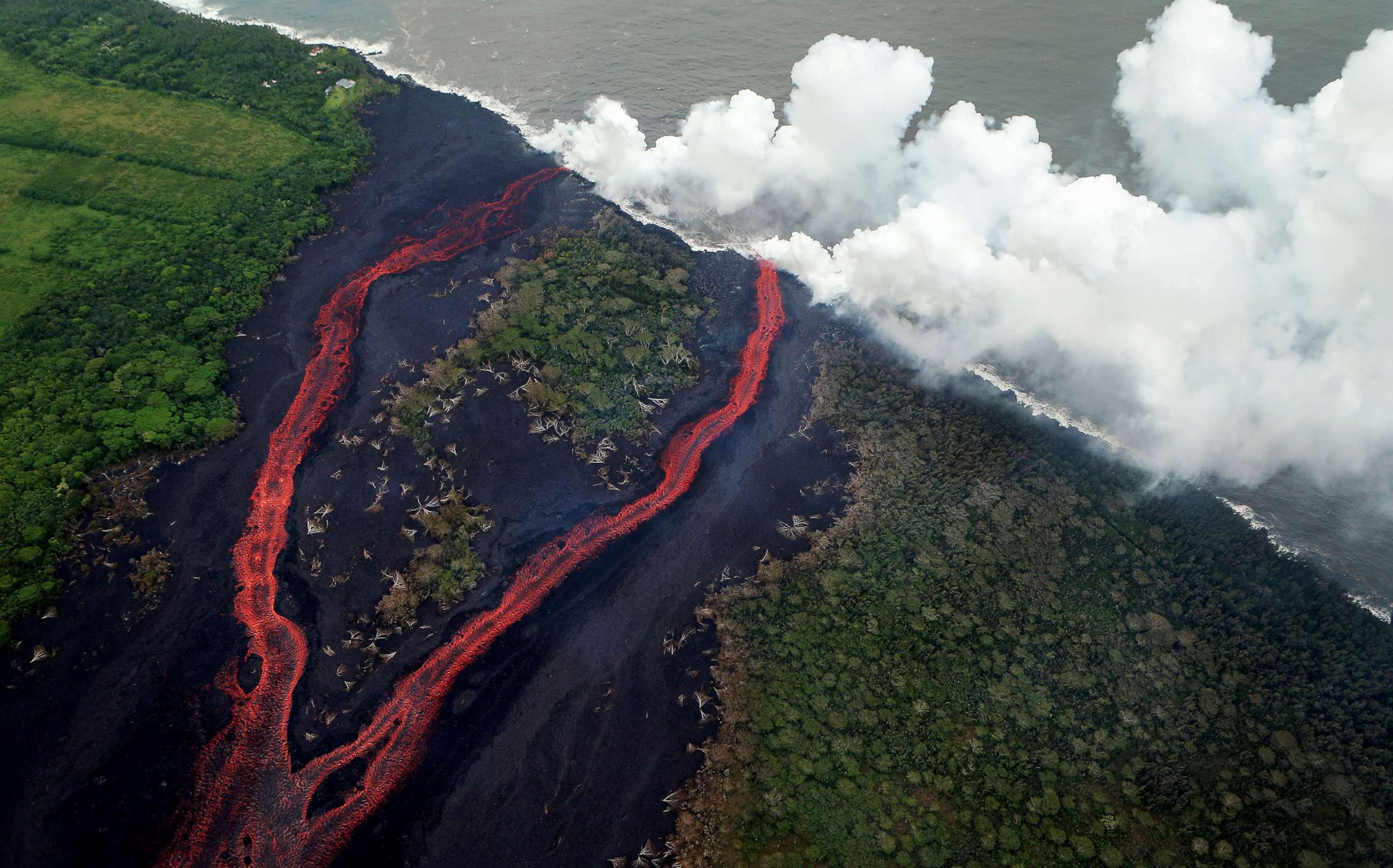
Lava from Fissure 22 breached the property of the Puna Geothermal Venture, where "county, state and federal partners have been collaborating closely to monitor the situation and work with PGV to ensure the safety of the surrounding communities," the county civil defense agency wrote in its post.
The plant supplies about 25 percent of the power for the Big Island. Officials are worried that if lava flows into one of the plant's wells it could cause the release of dangerous hydrogen sulfide gas, officials said.
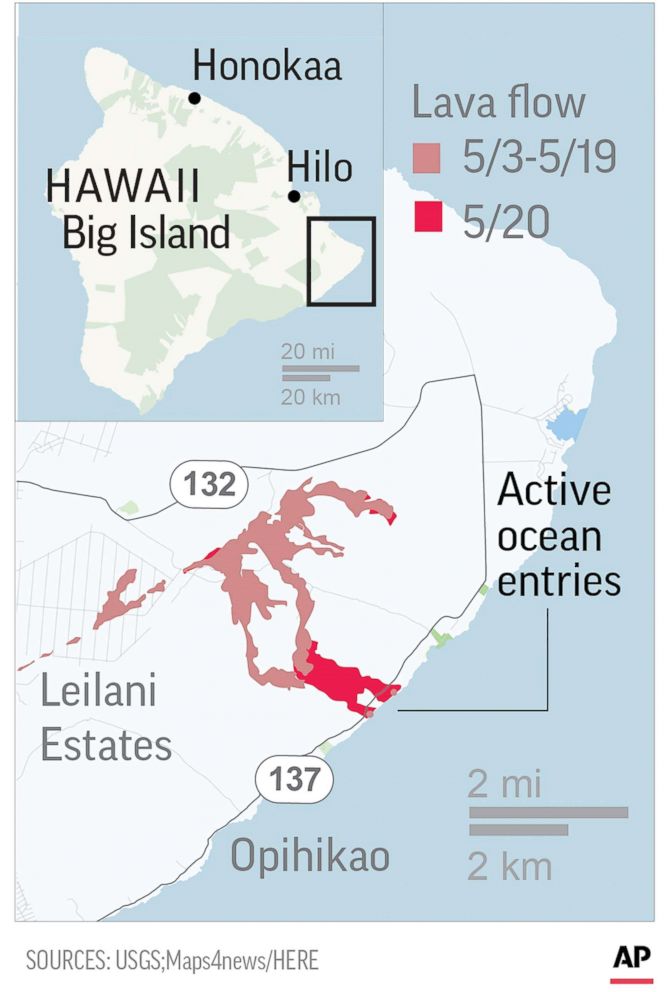
"Residents in the affected area should be prepared to leave the area with little notice due to gas or lava inundation," the Civil Defense agency said in its post. "Take action necessary to prepare ahead of time."
The crisis at the geothermal plant was just the latest in a series of emergencies that have occurred since Kilauea exploded with a vengeance earlier this month.
The new hazards came a day after officials warned that lava was flowing into the ocean, forming a haze known as "laze" that contained microscopic shards of glass that is dangerous to breathe.
New eruptions from Hawaii volcano create more lava destruction
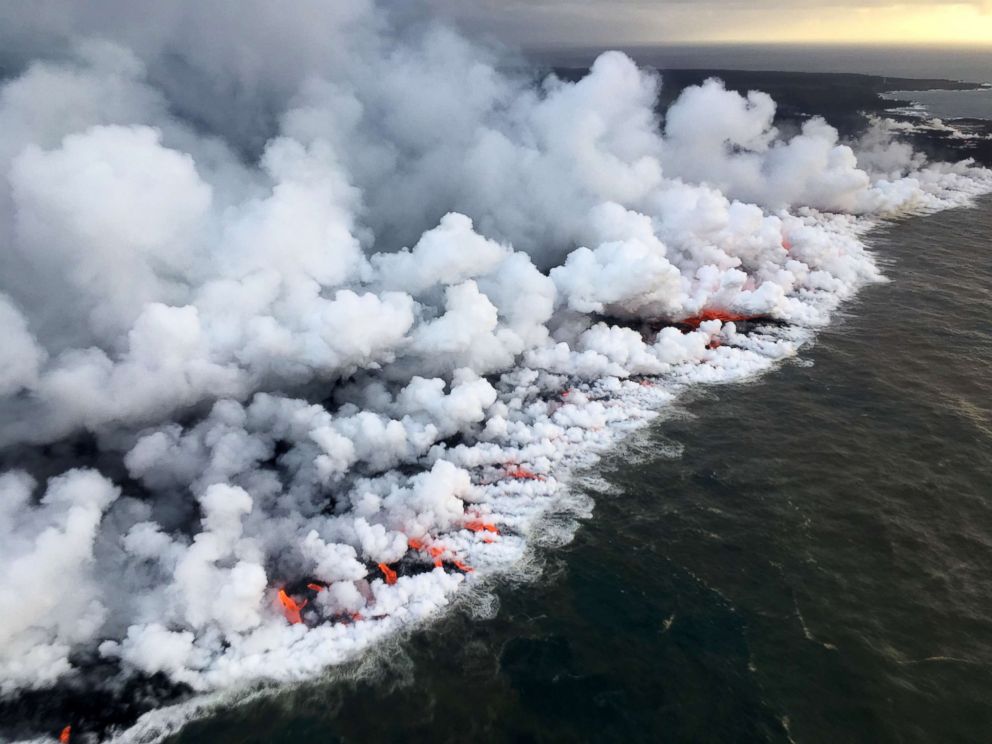
Officials cut off access to the coastal area where the laze was heavy and passed out some 18,000 respirators to local residents.
Owners of farms near the flowing fissures were worried about ash coating vegetable crops and pasture grass where cows, sheep and horses graze.
"I've got several friends that grow vegetable crops. The sulfur dioxide destroys their lettuce and Swiss chard," Susan, one of the local farmers, told ABC News. "No one has a bar big enough to really protect all the animals that are in the pasture. You worry about the water troughs with the ash getting in there. You worry about the pasture grass that they're feeding on, that it will have ash on it."
